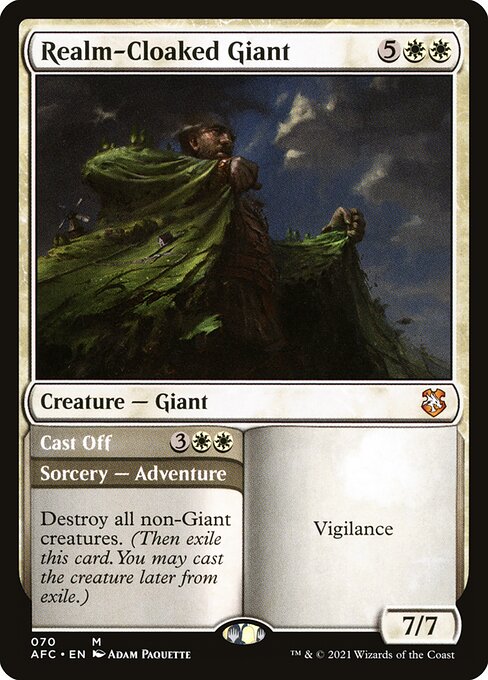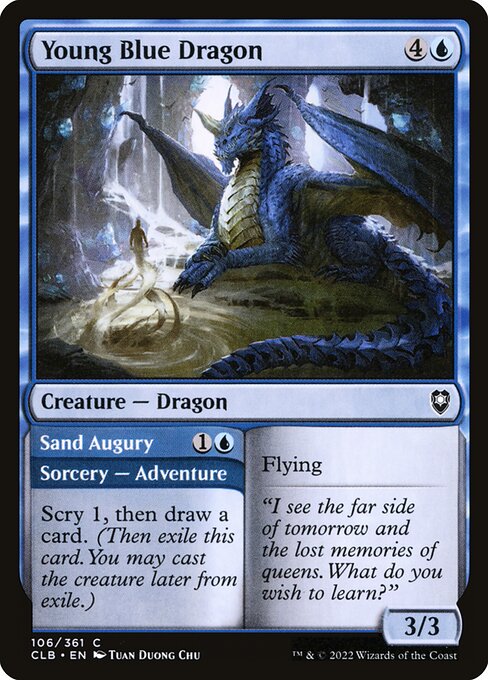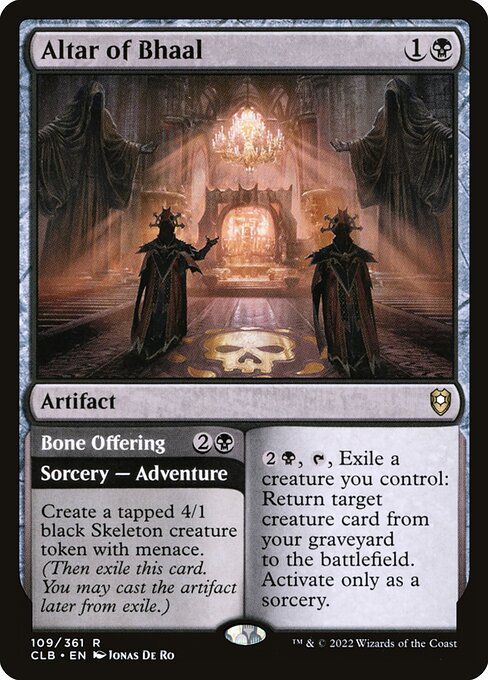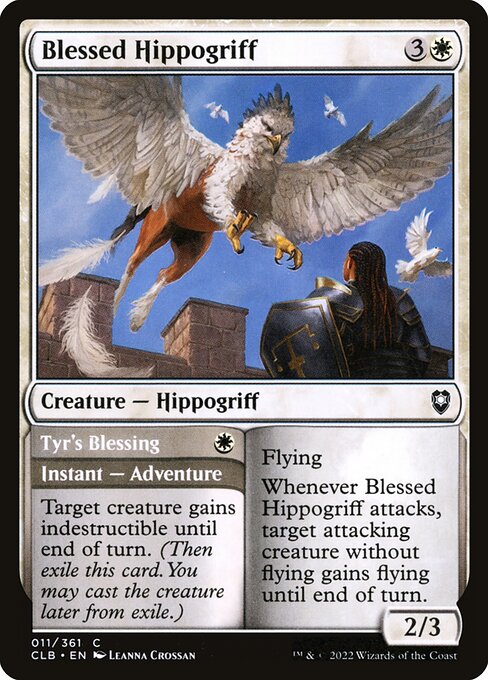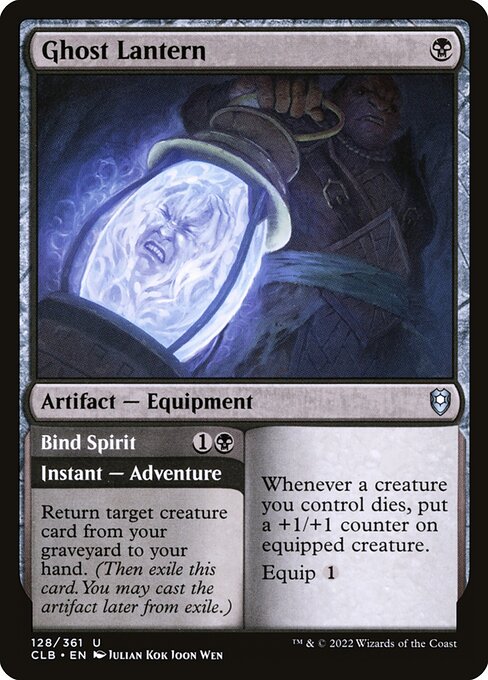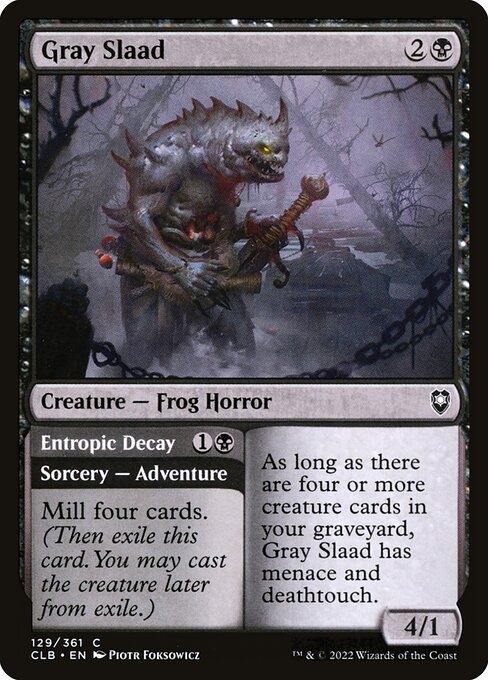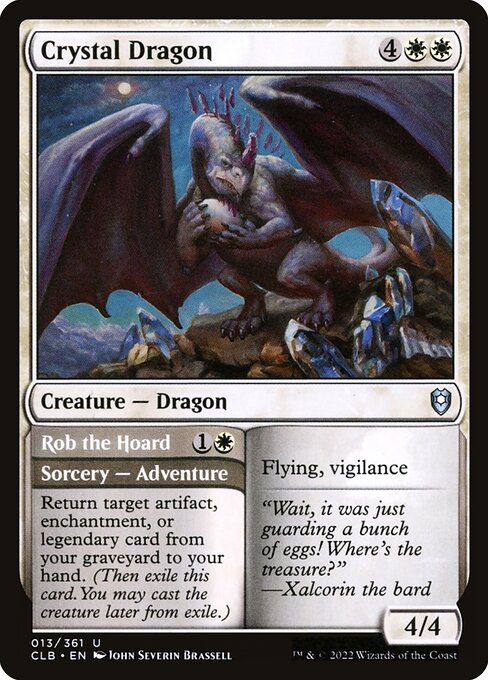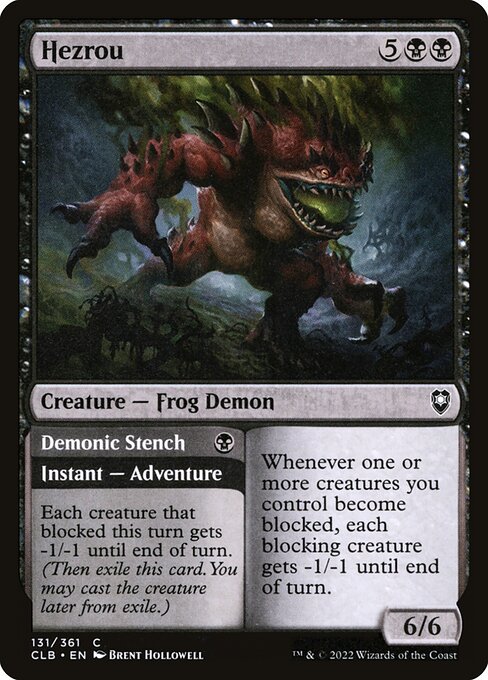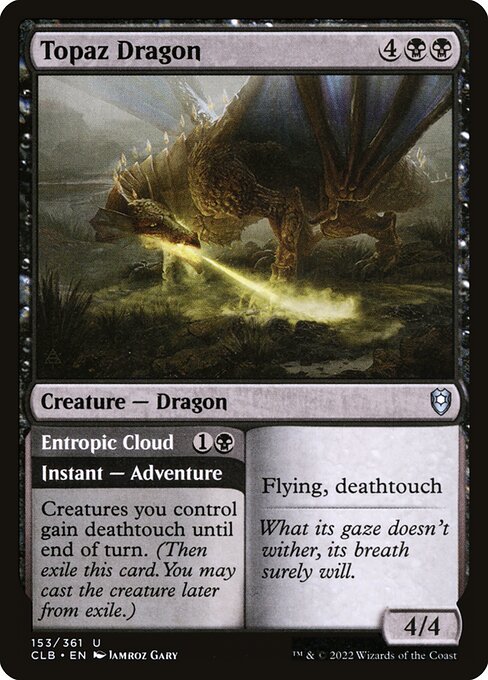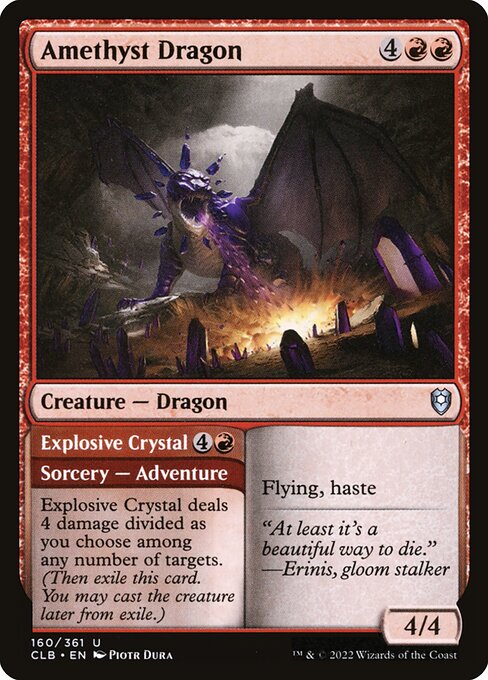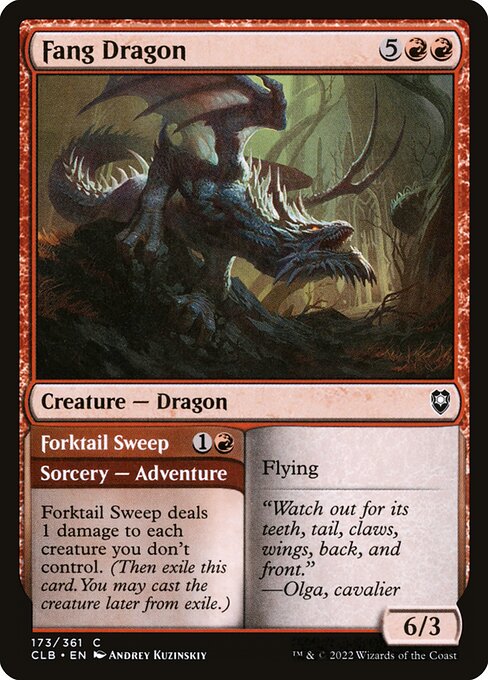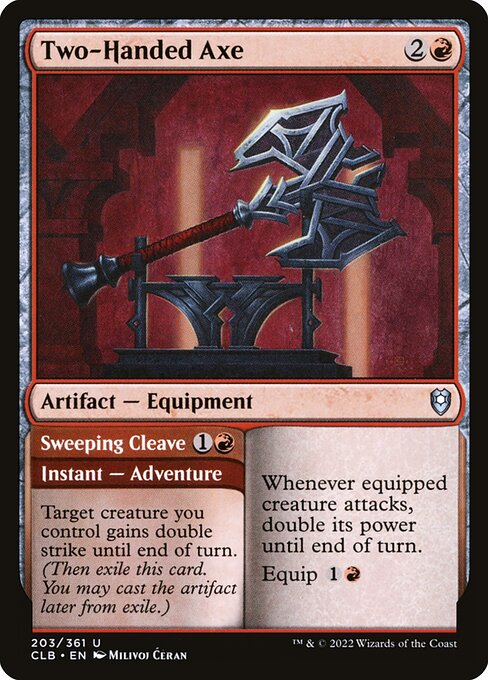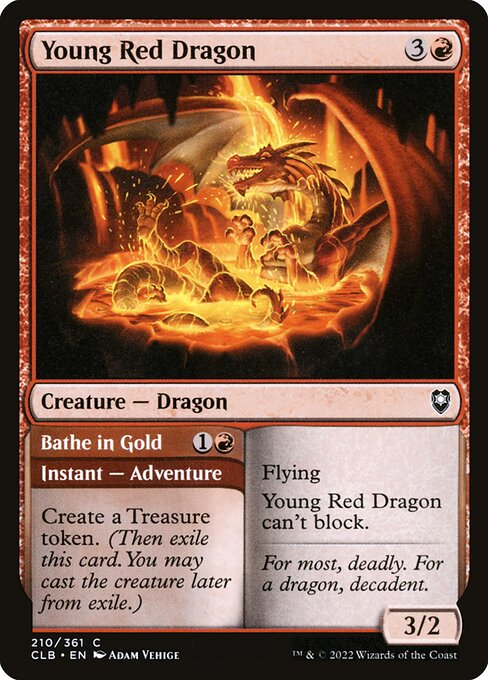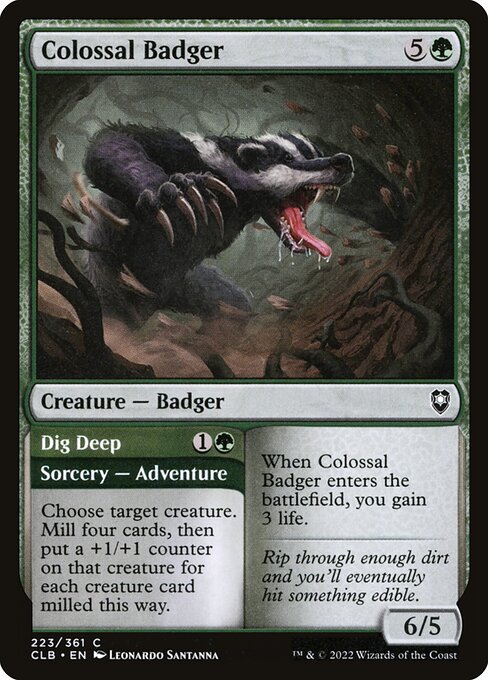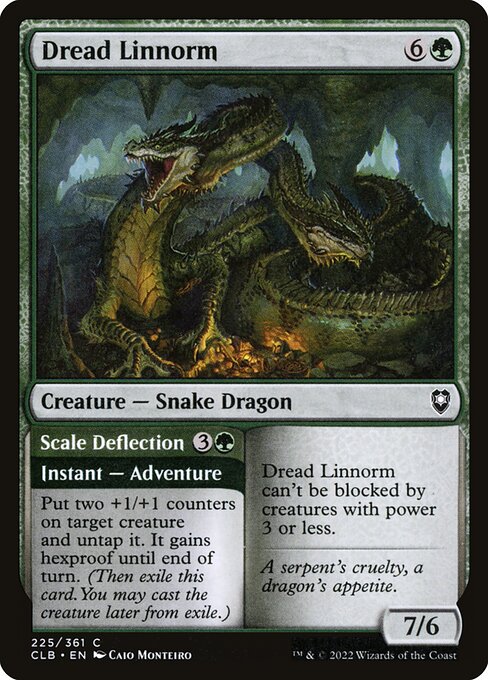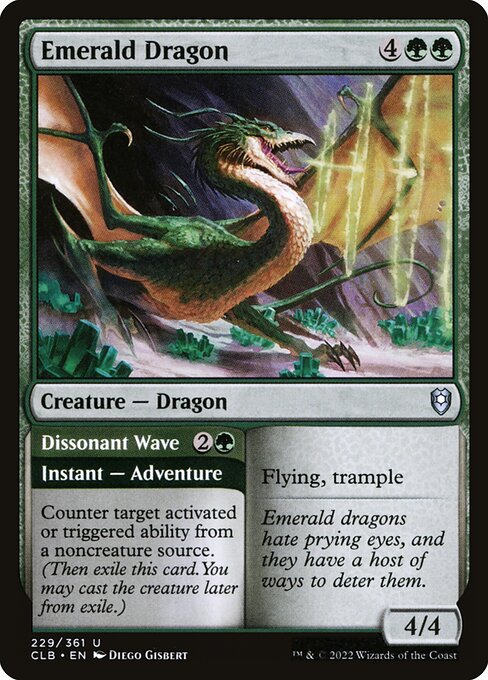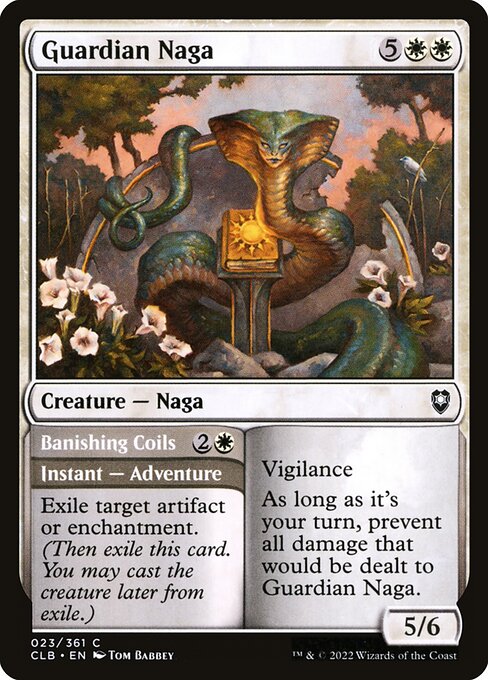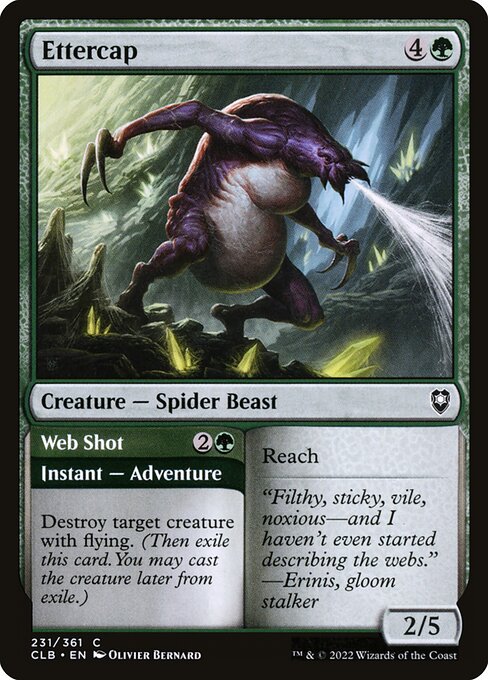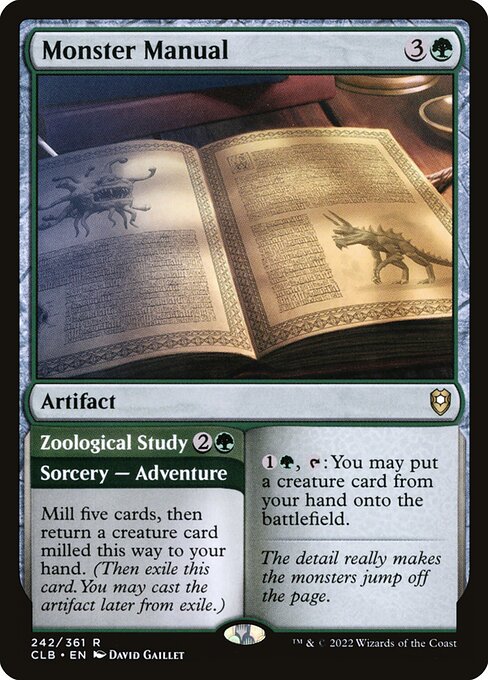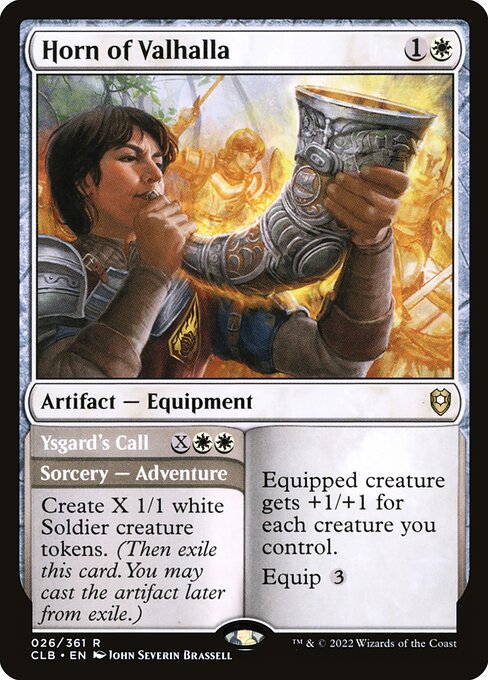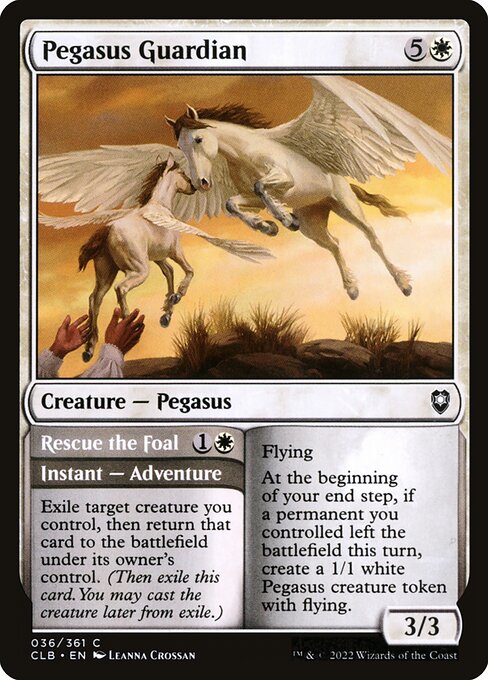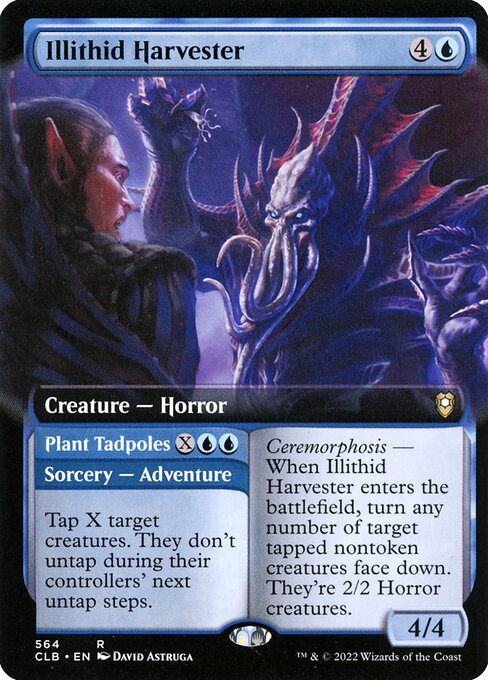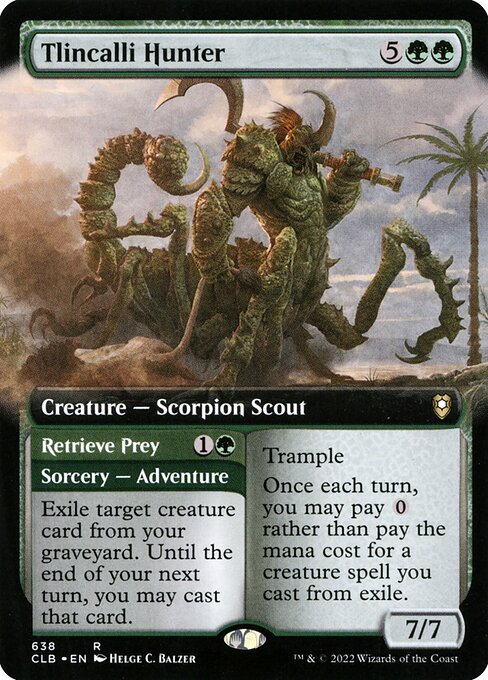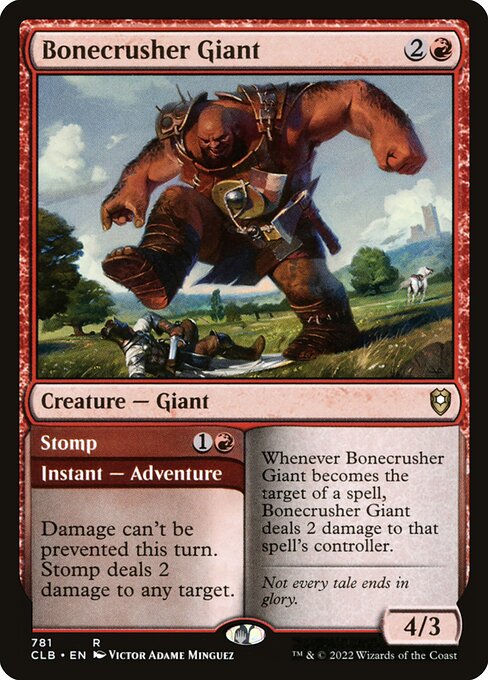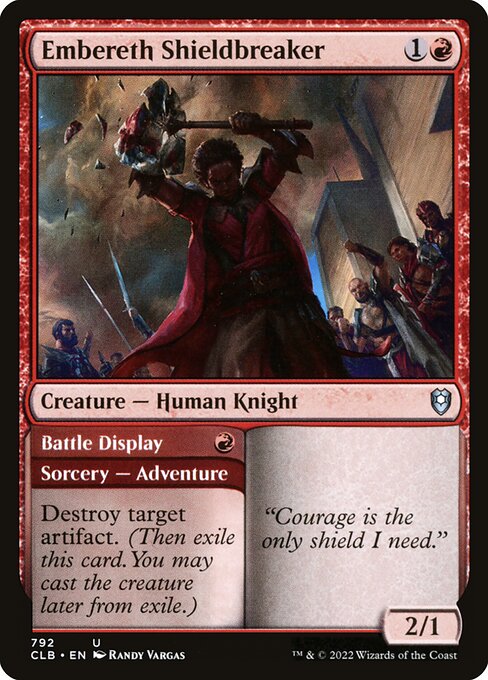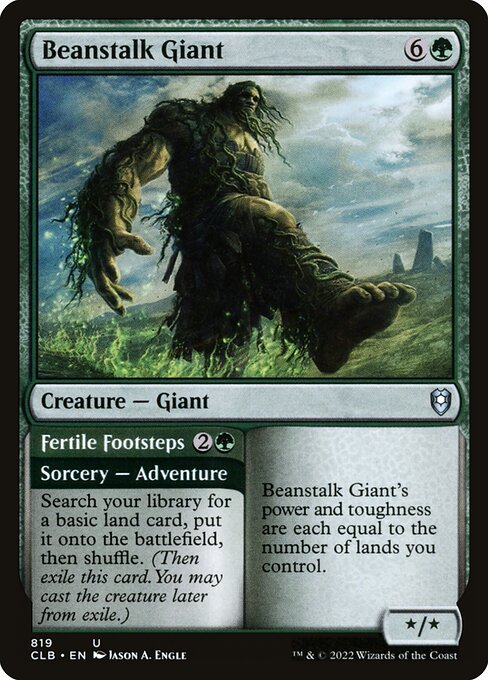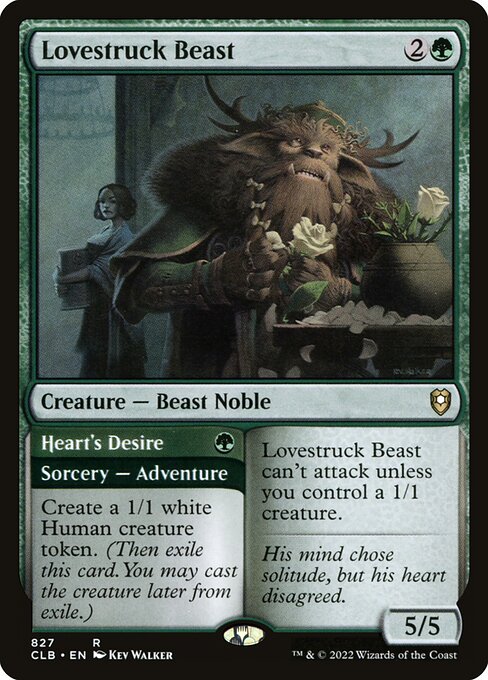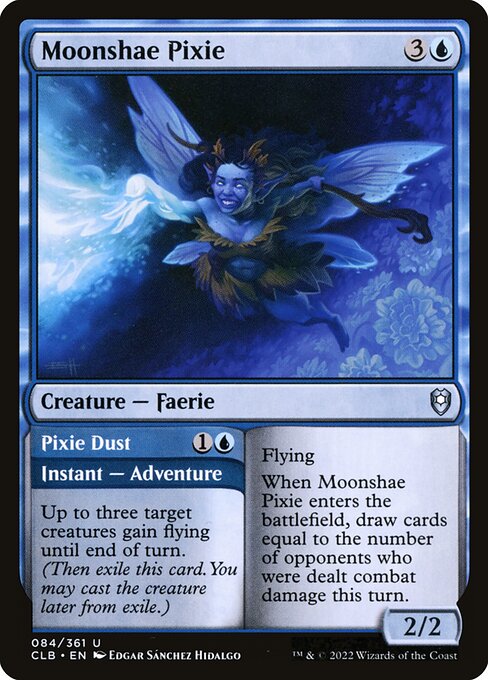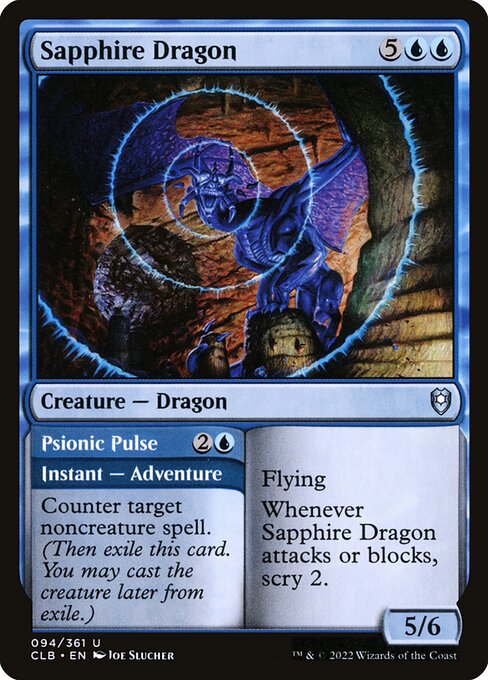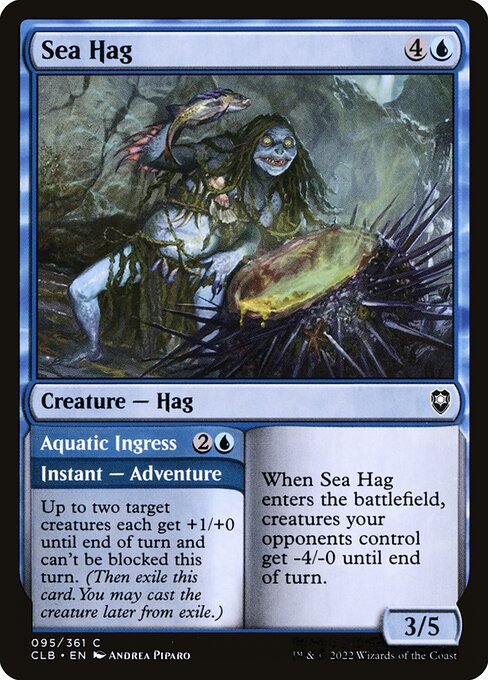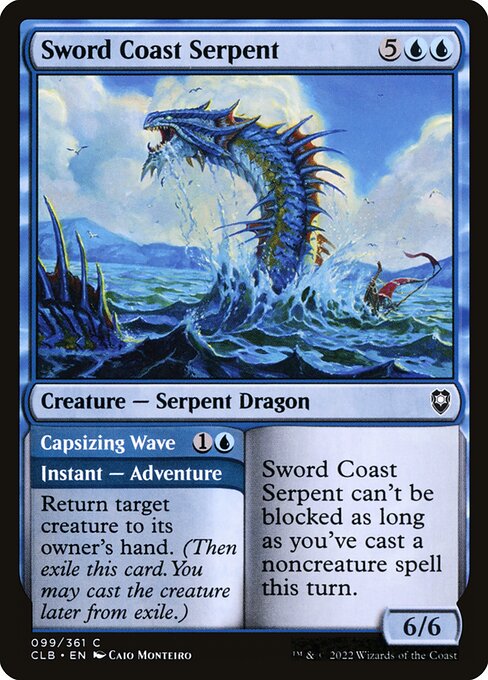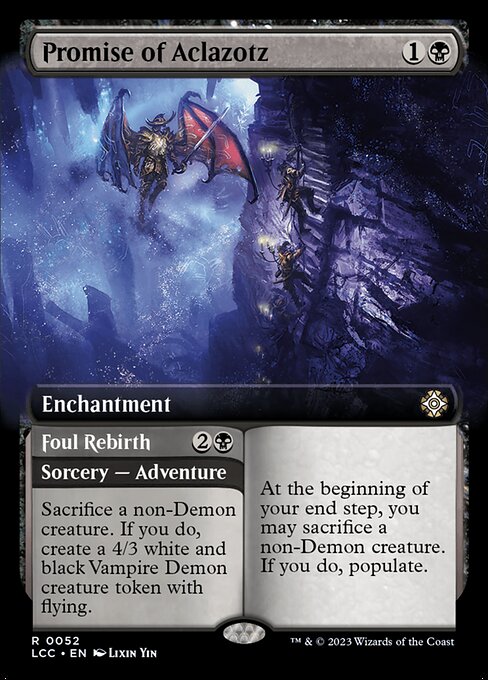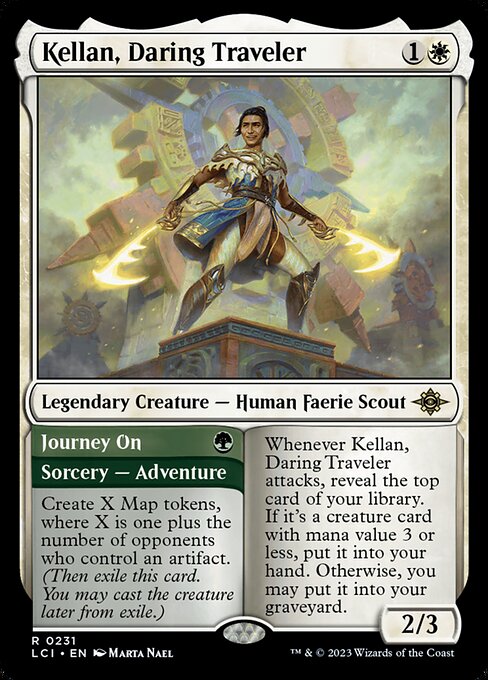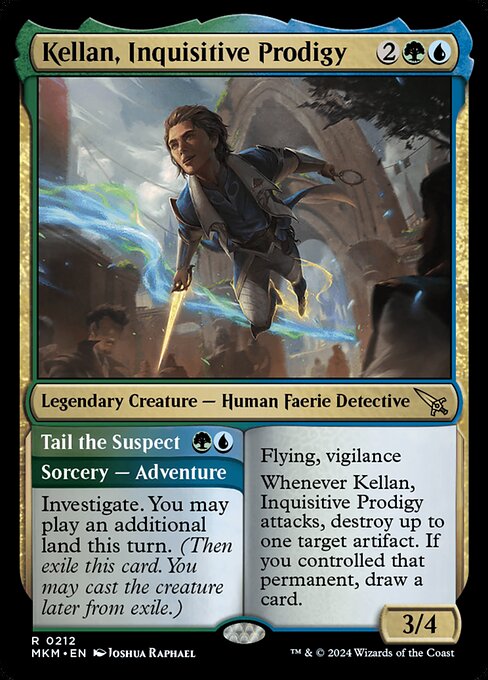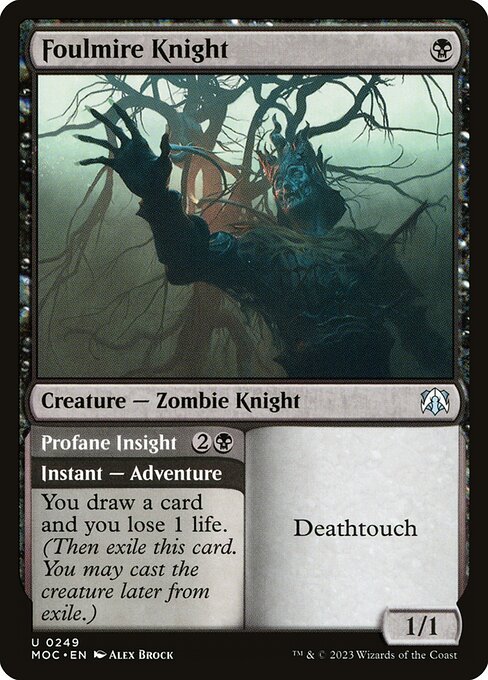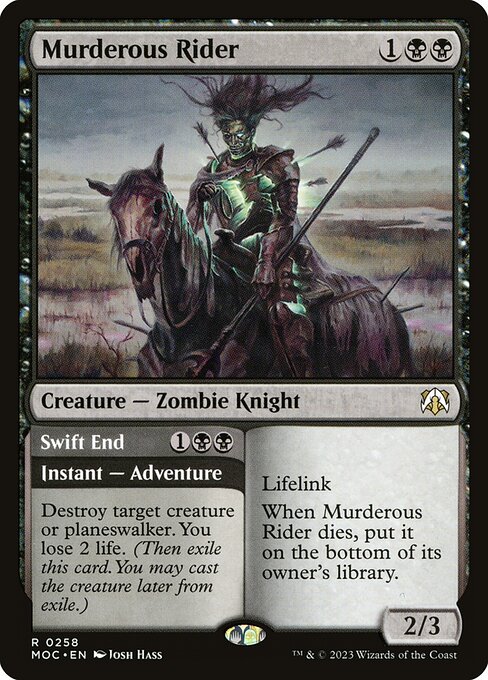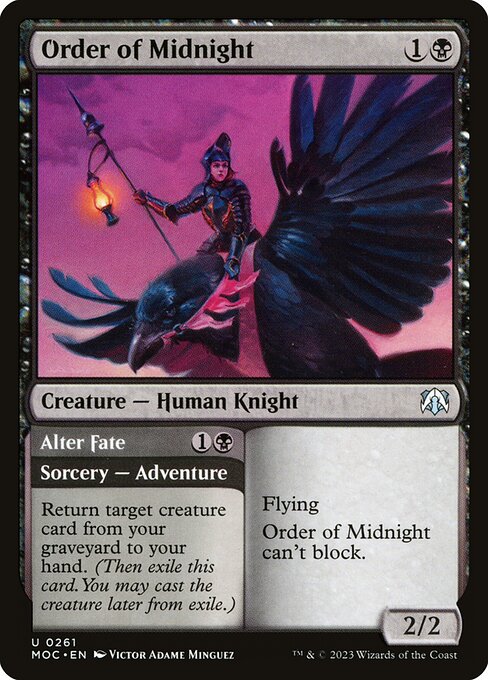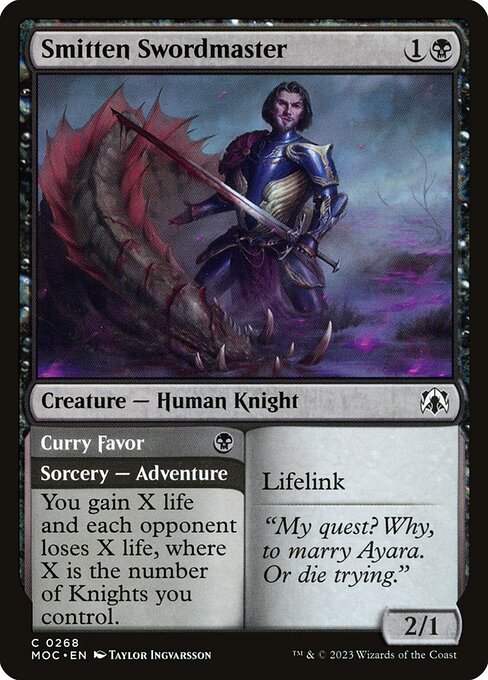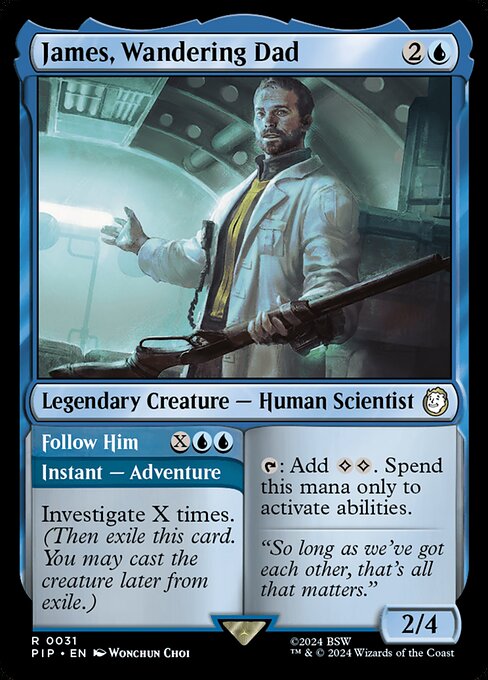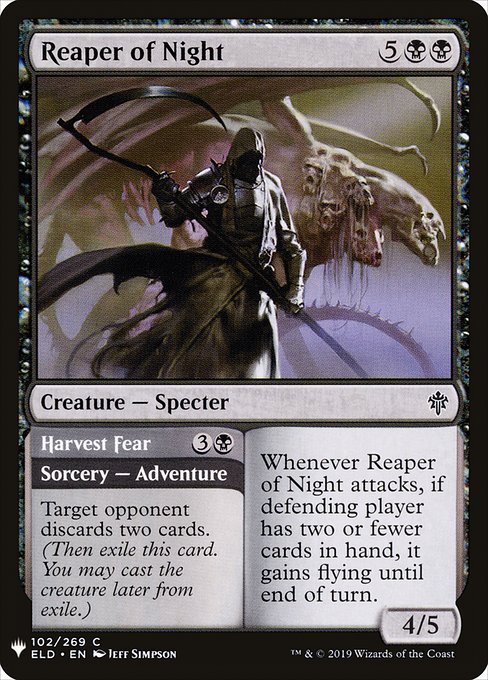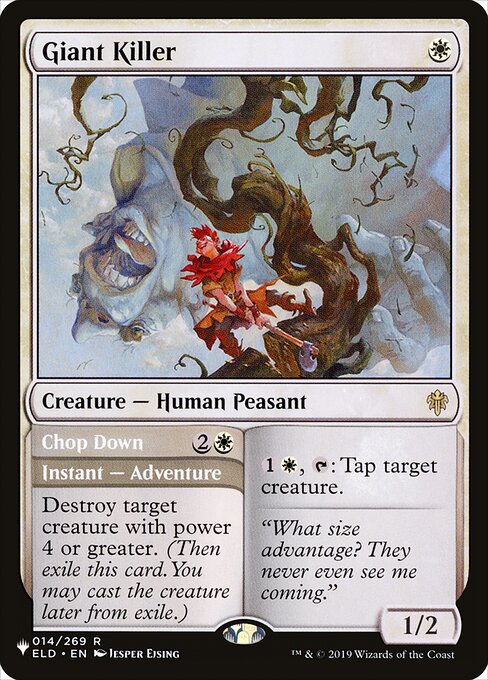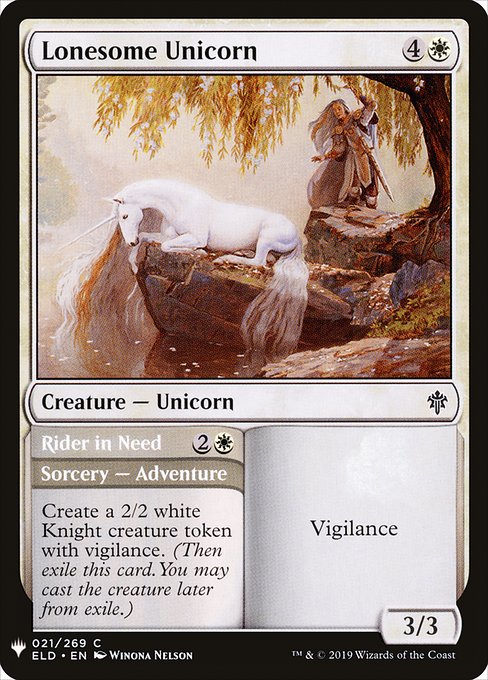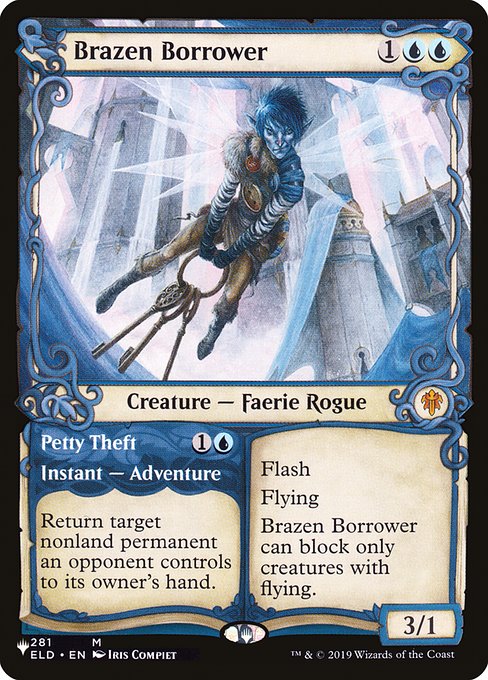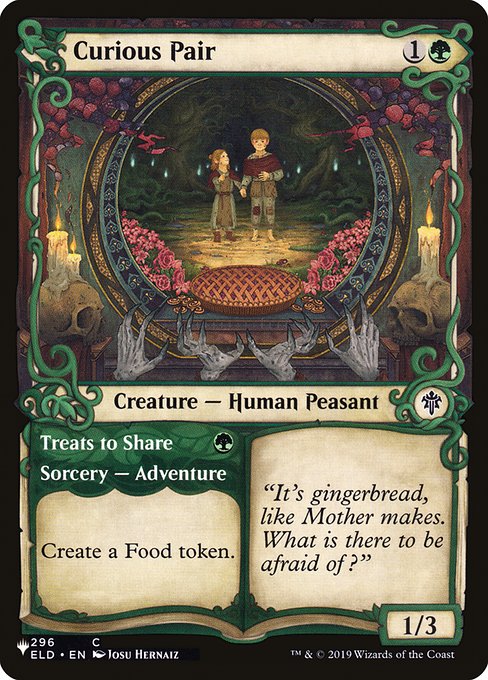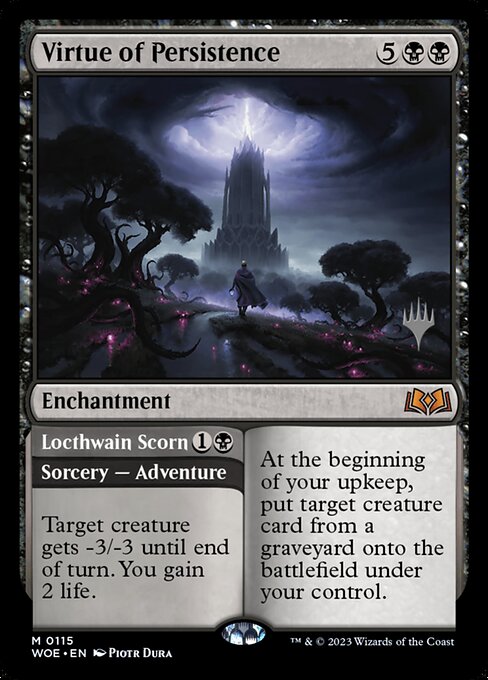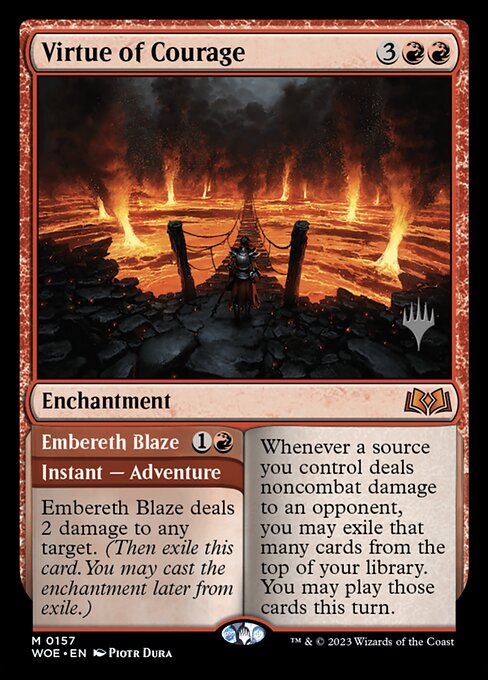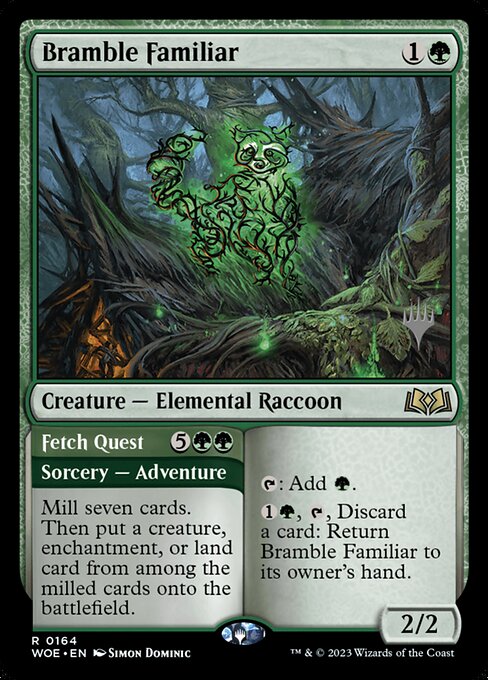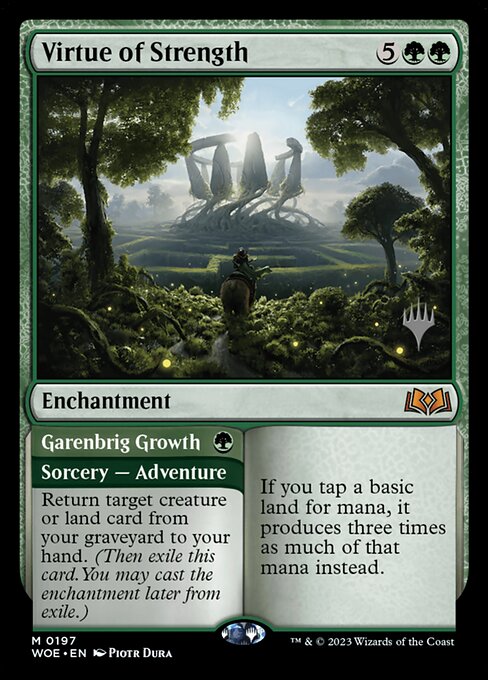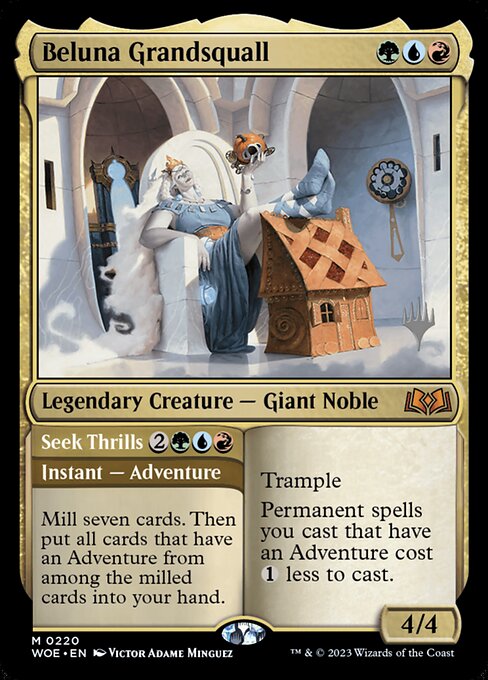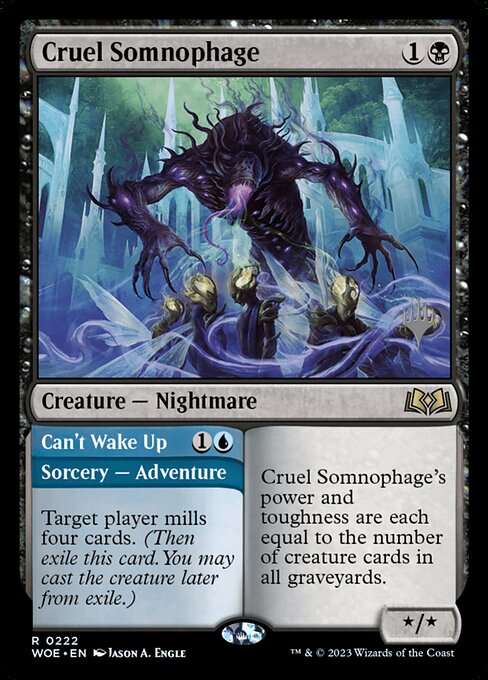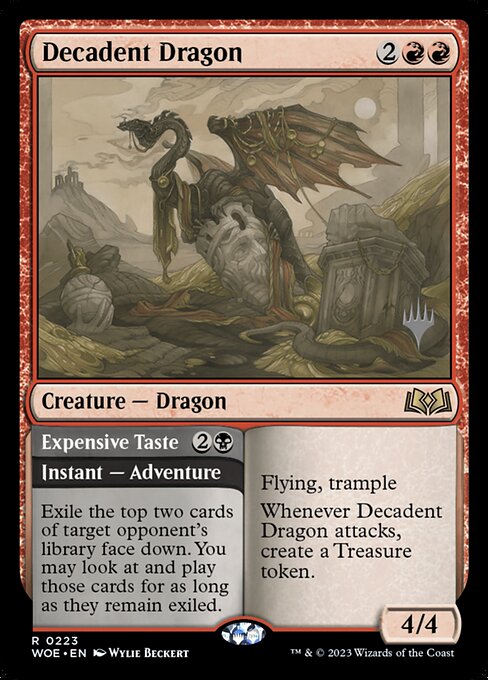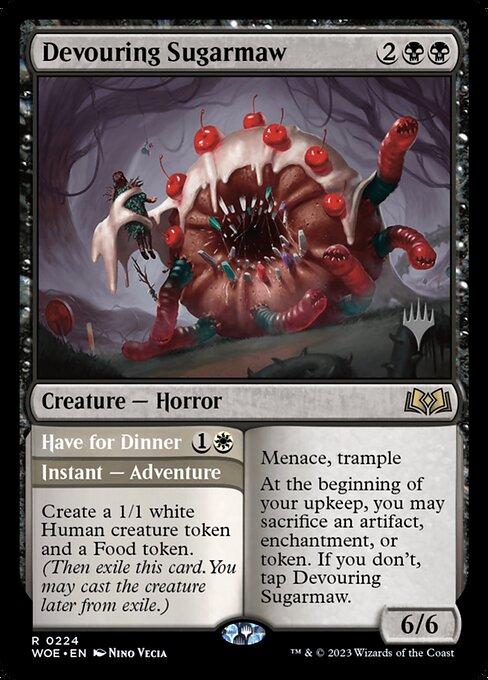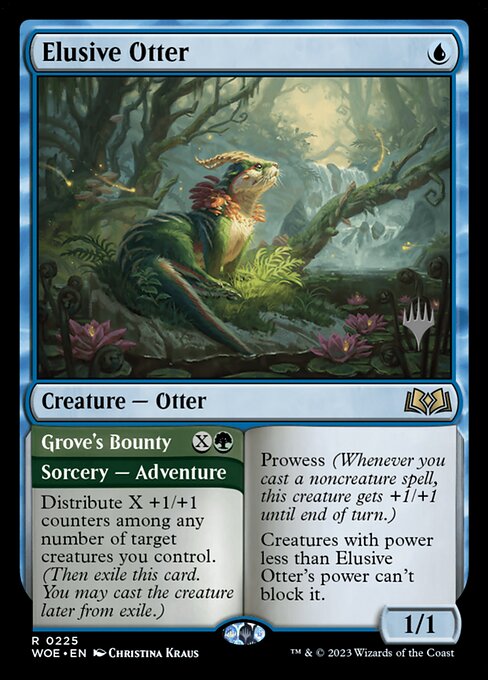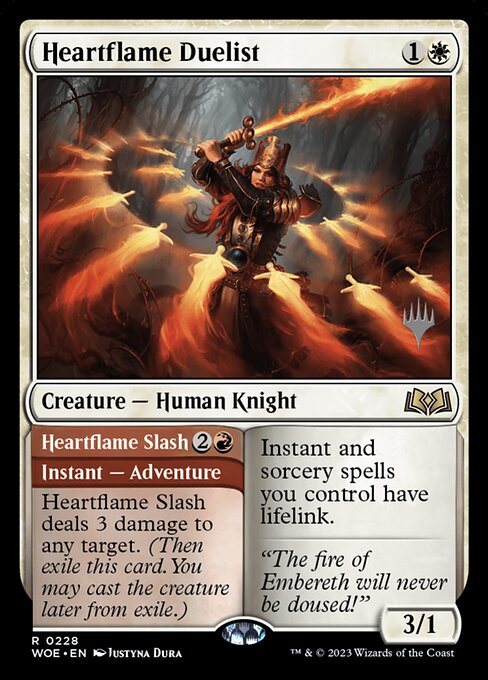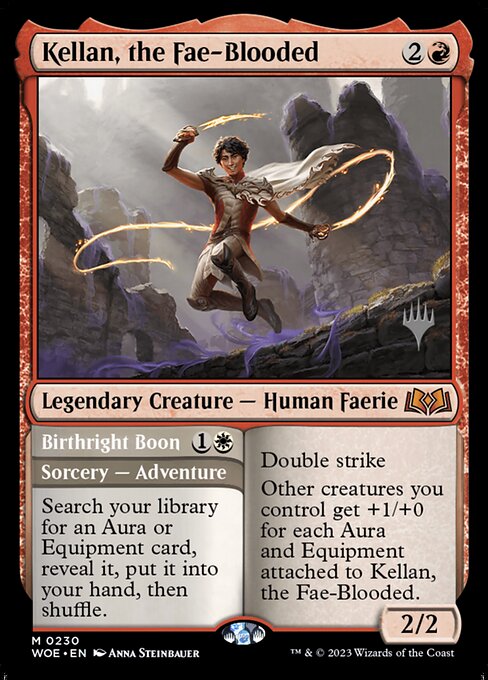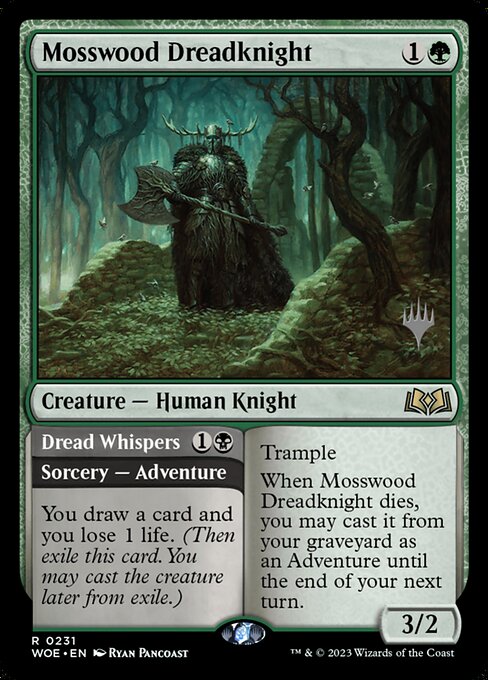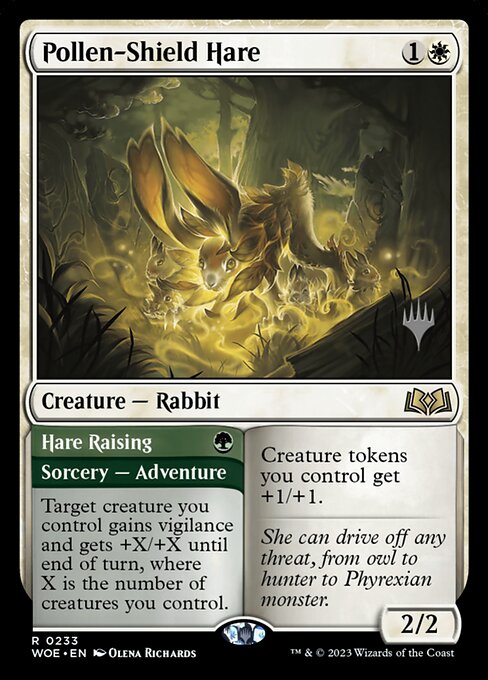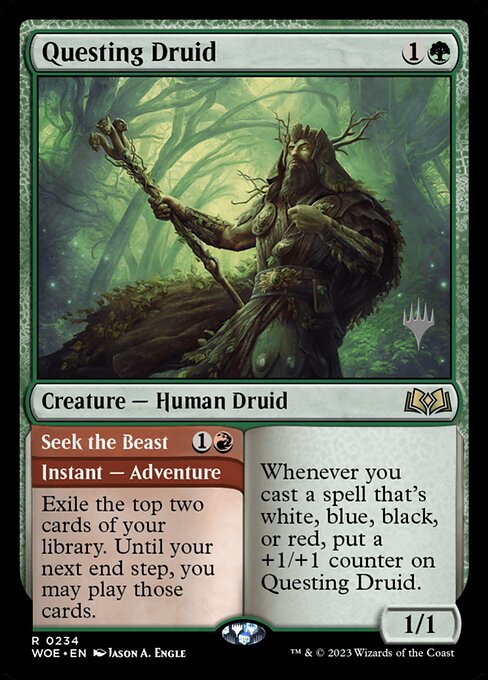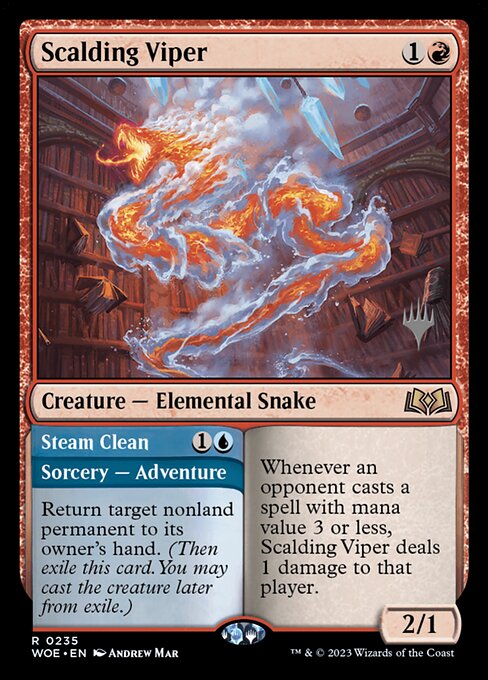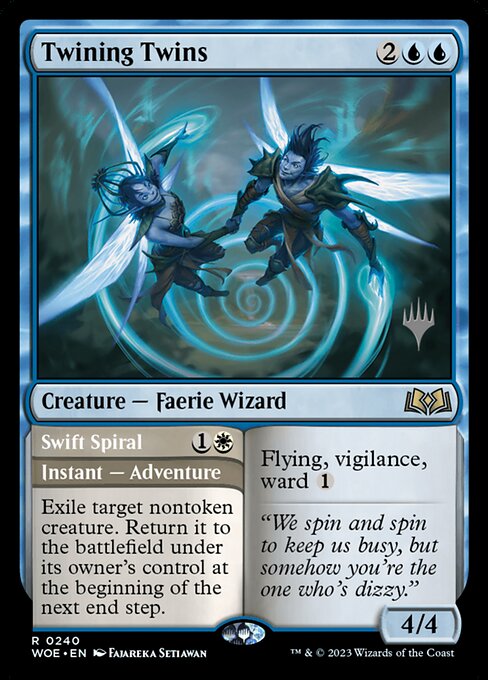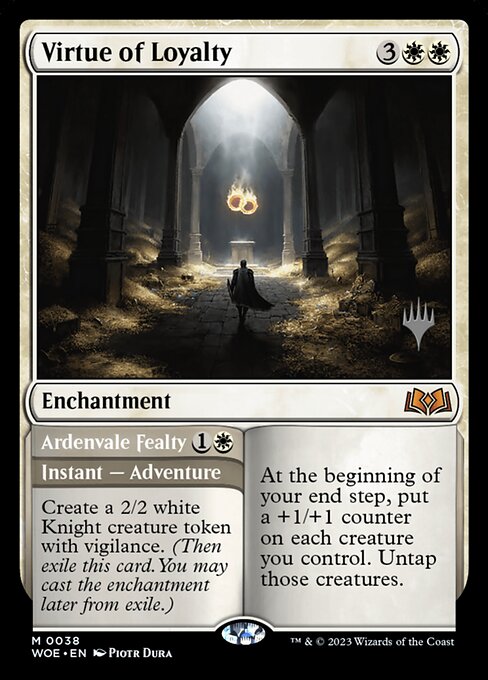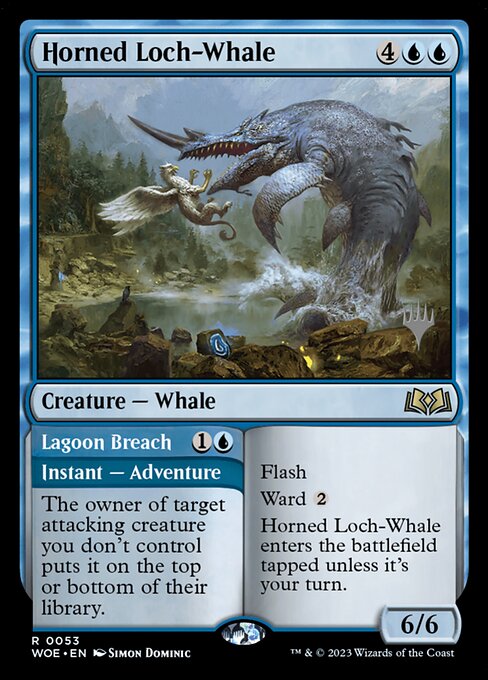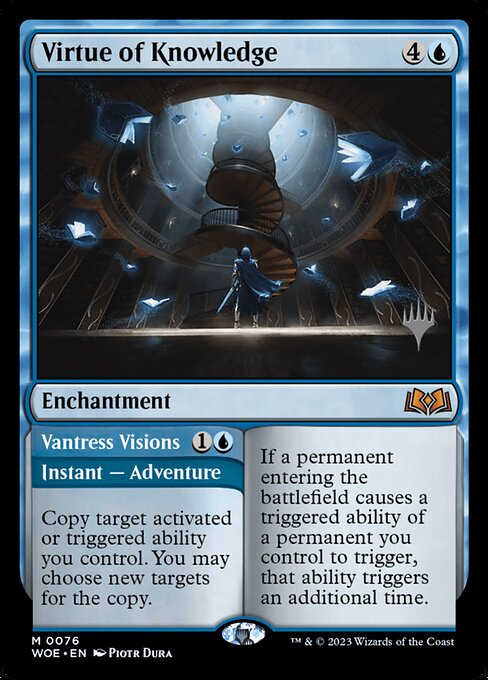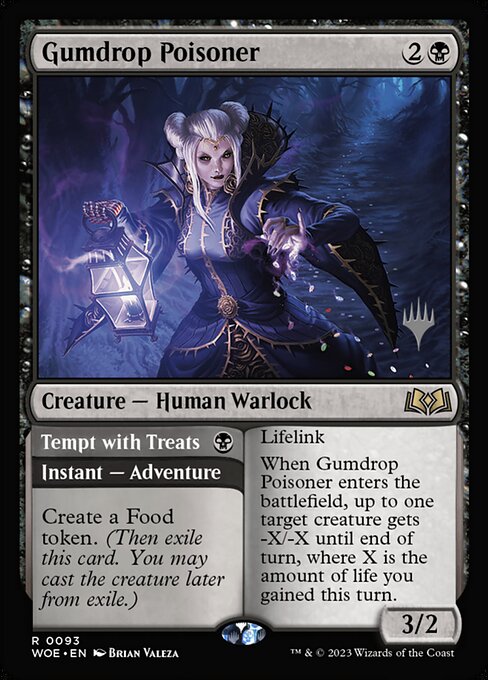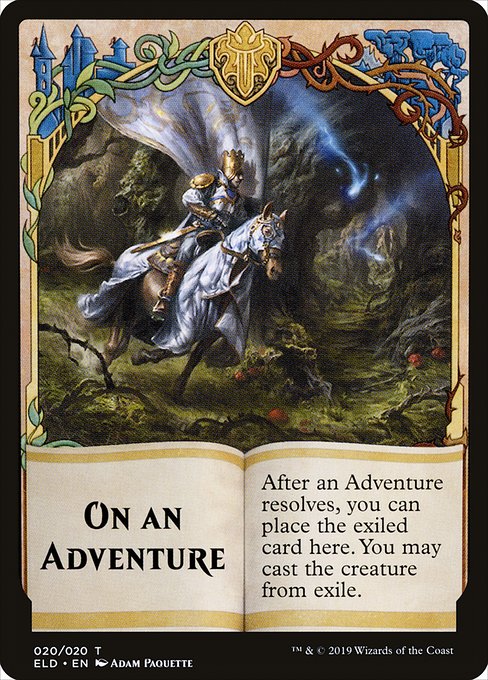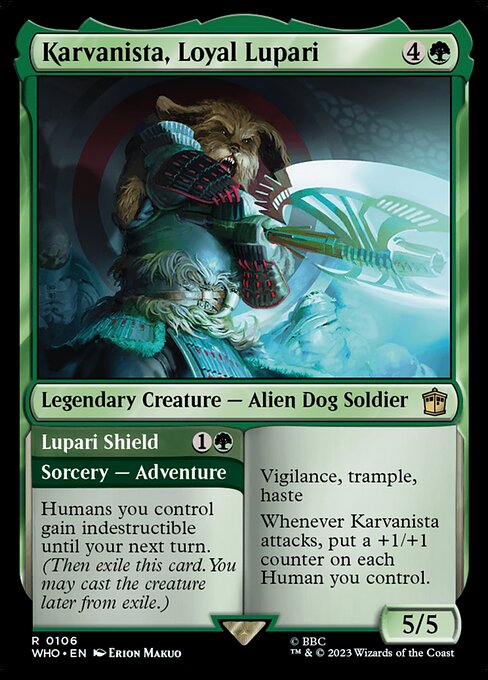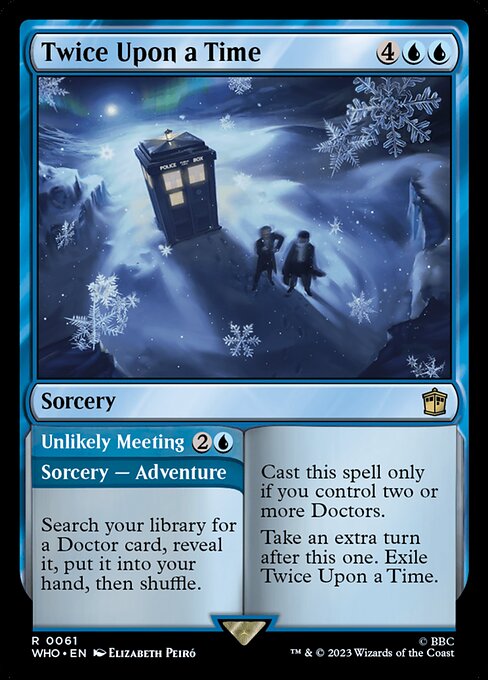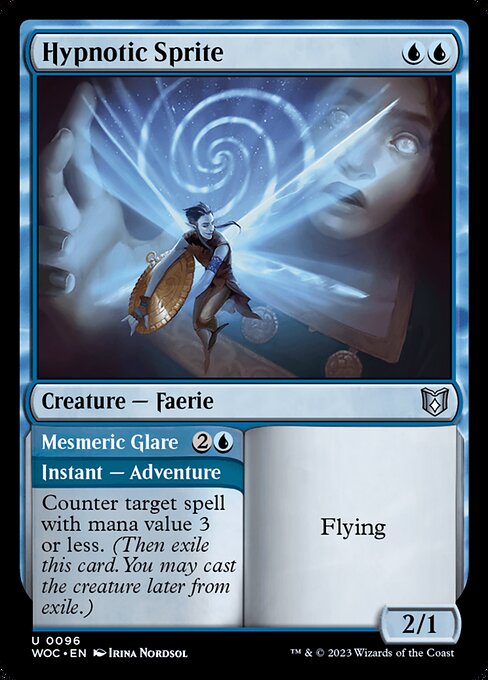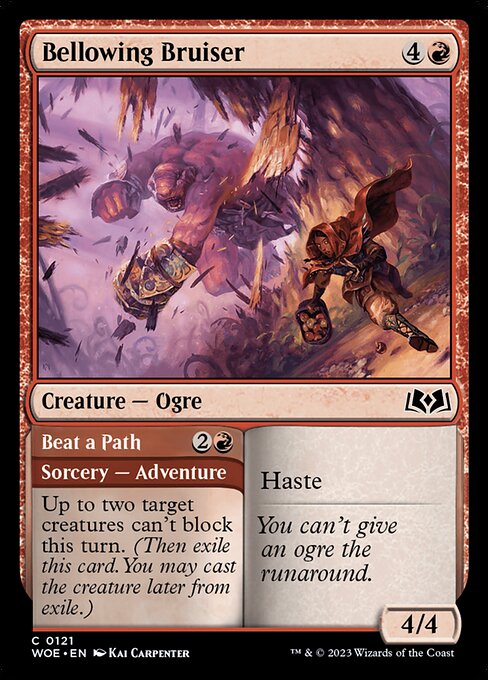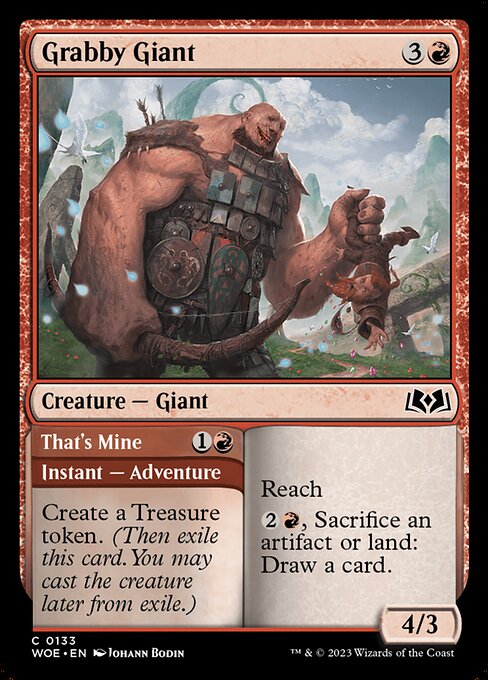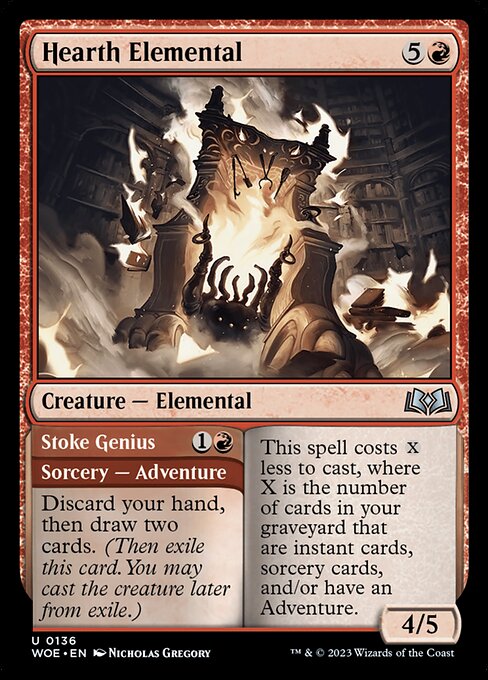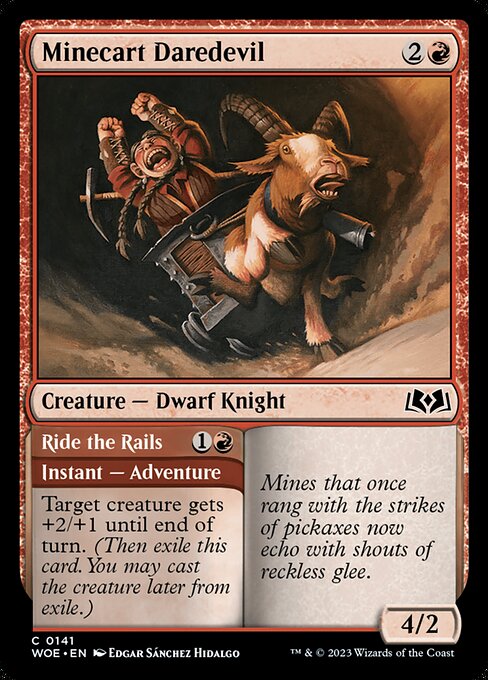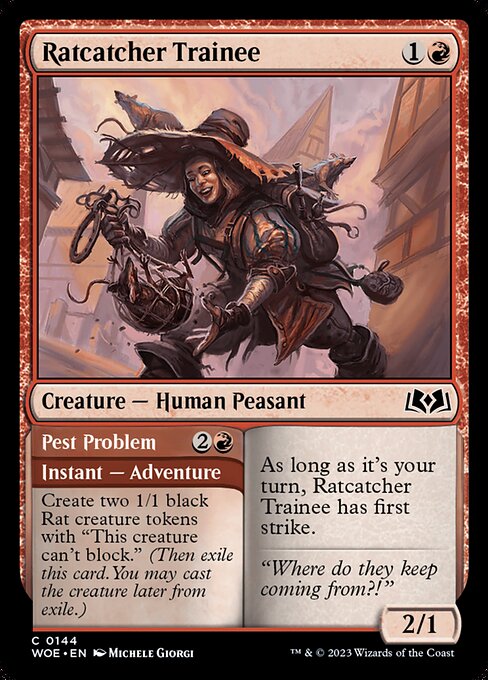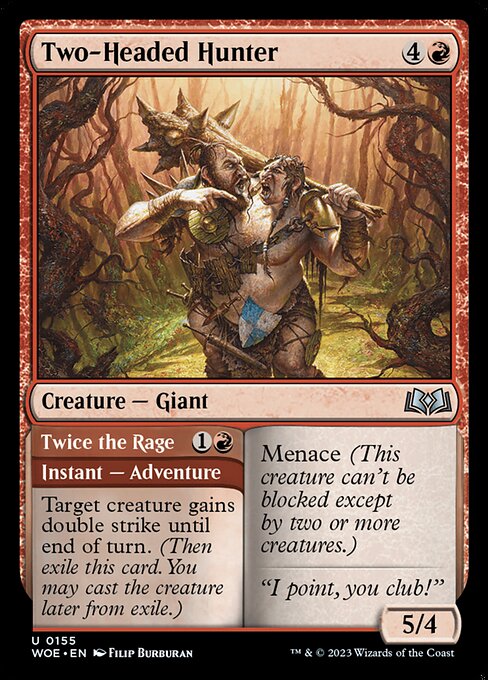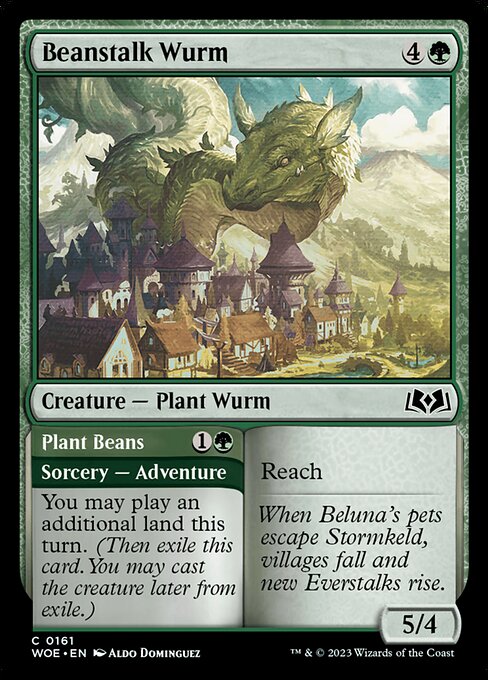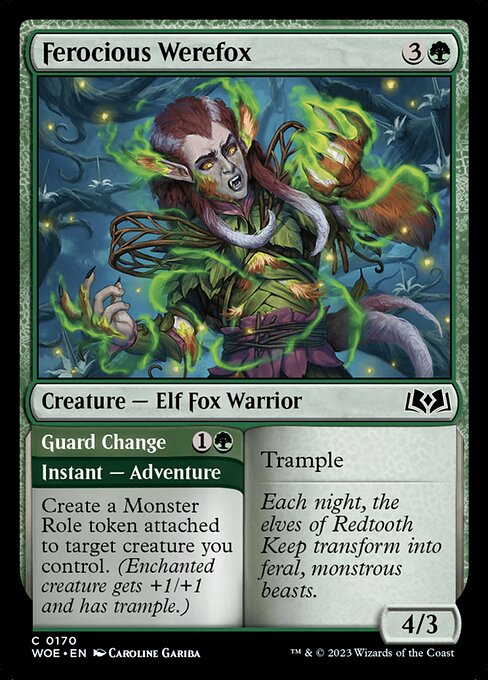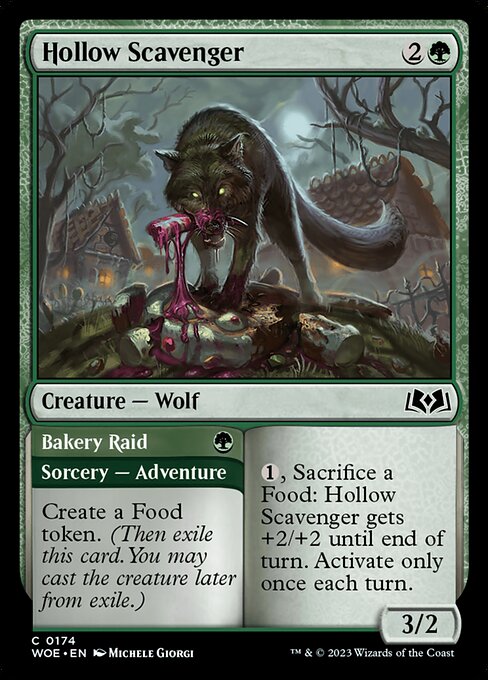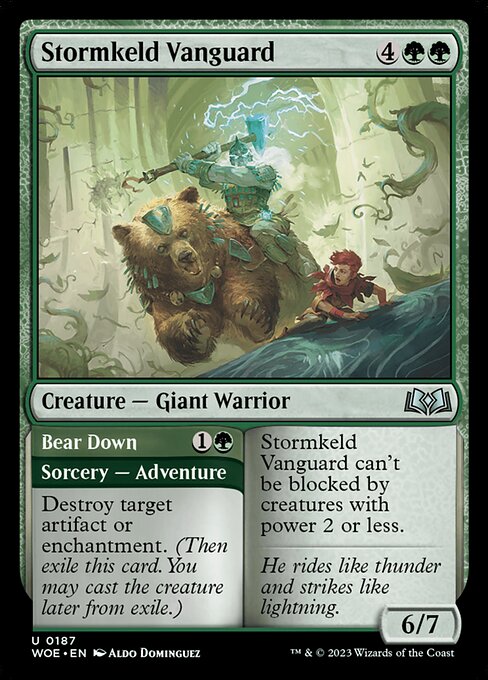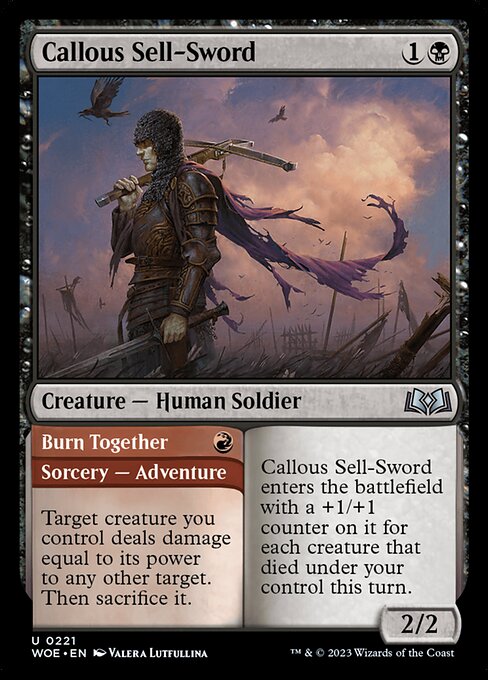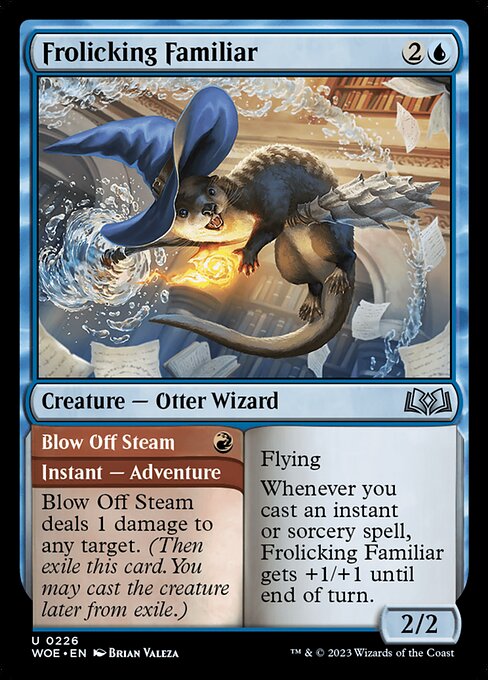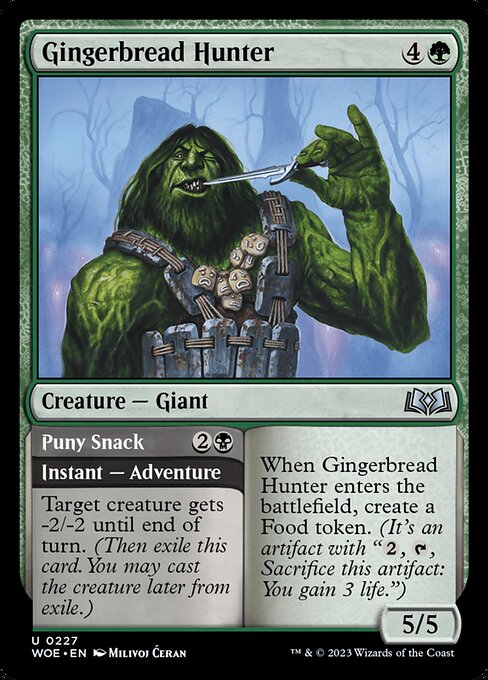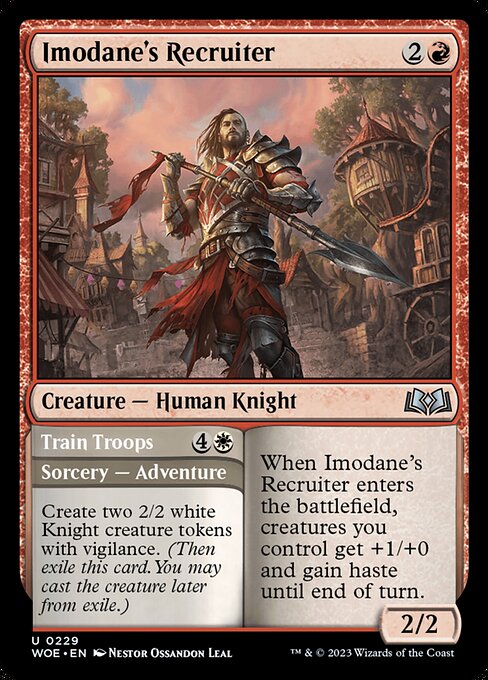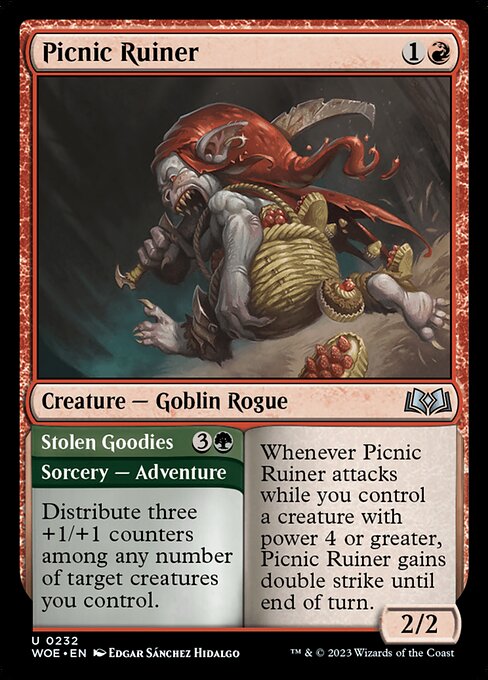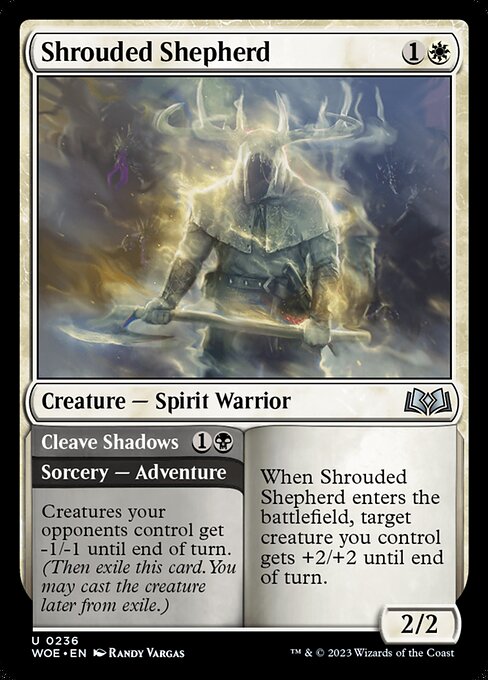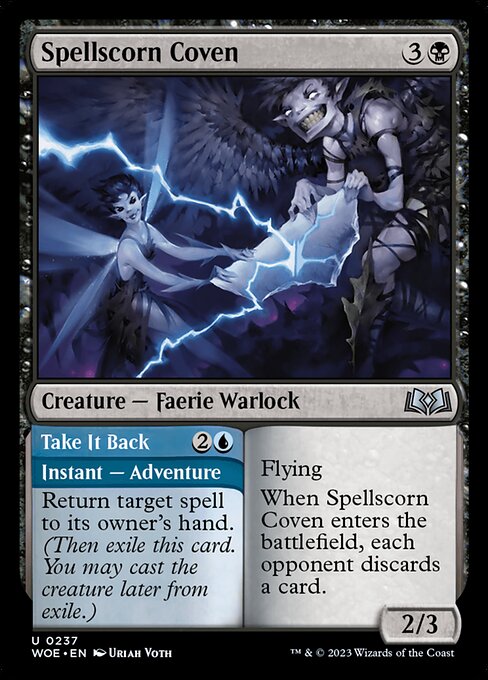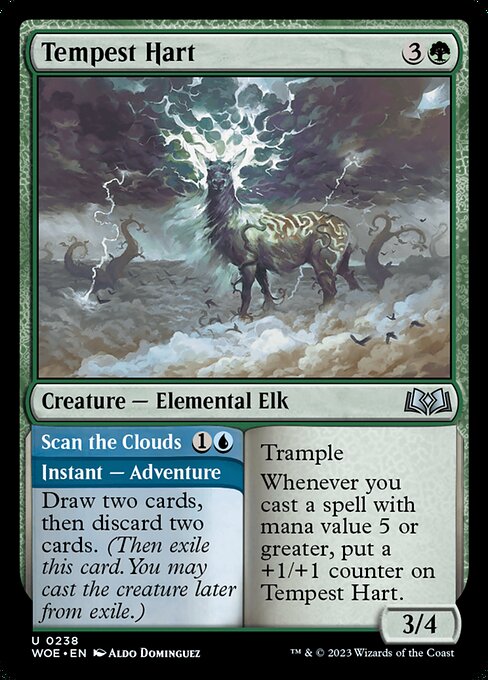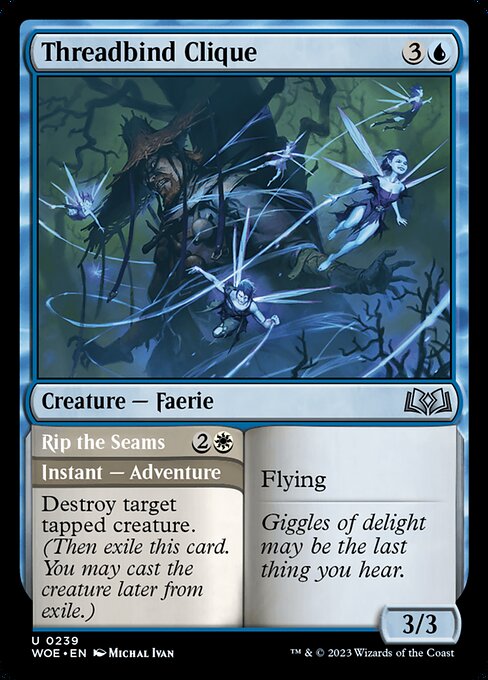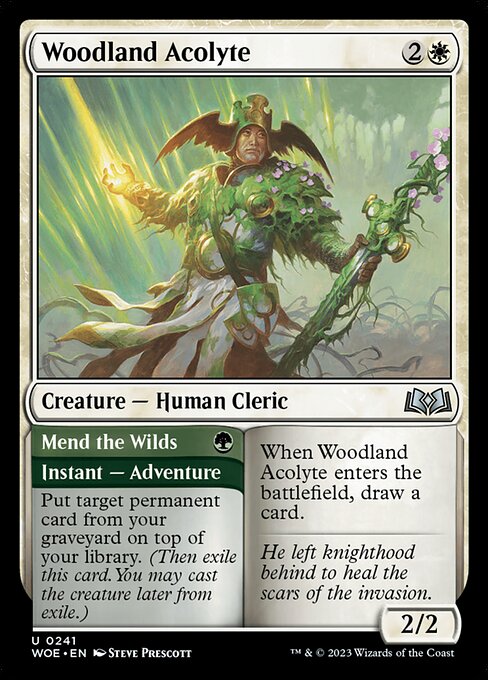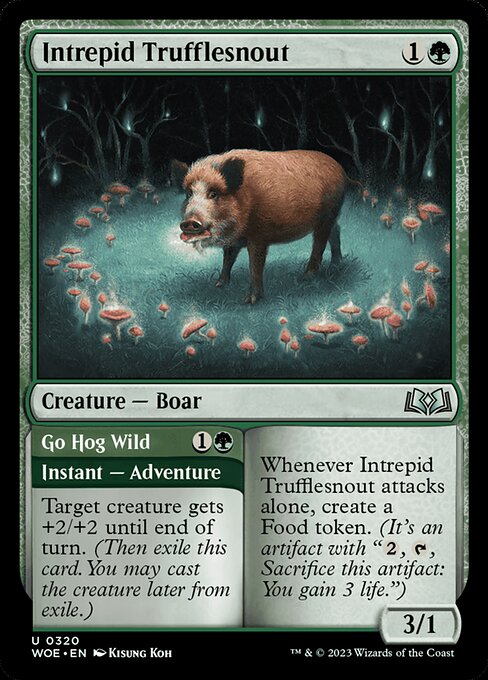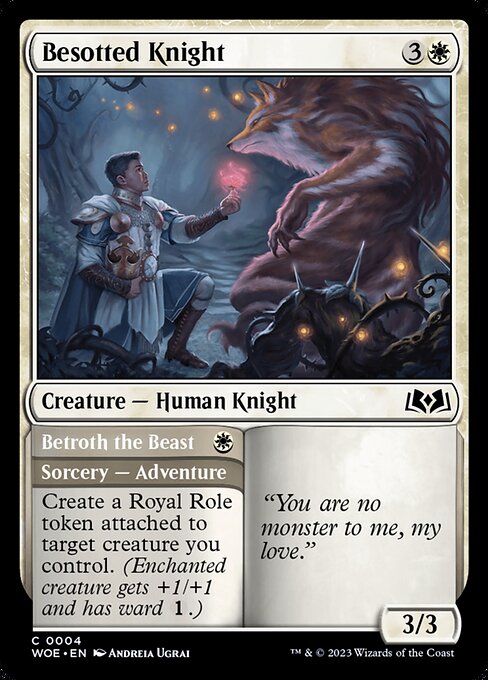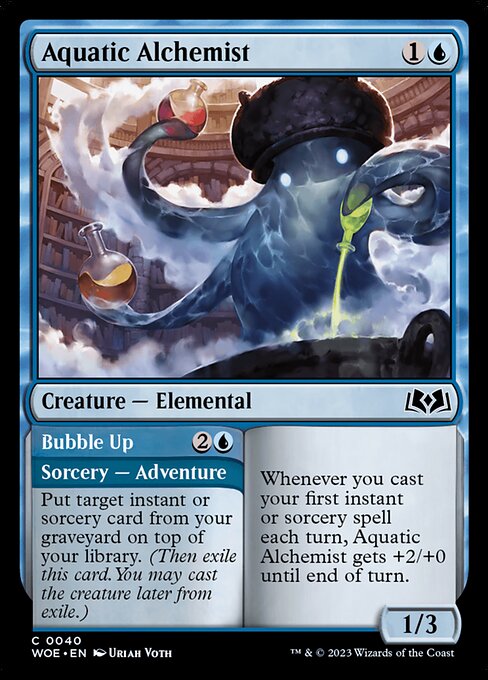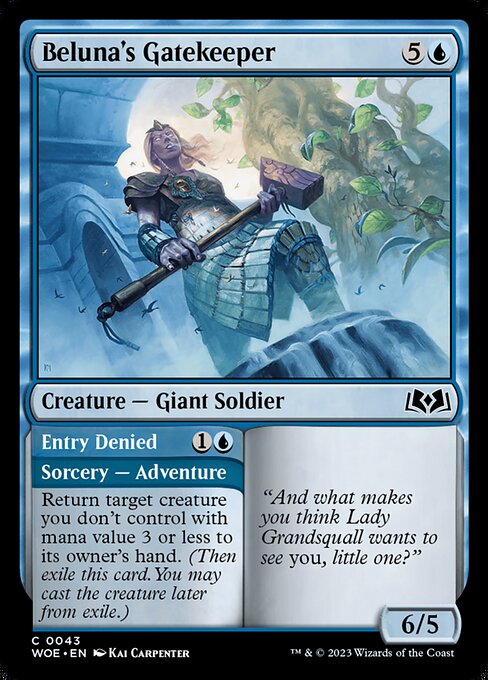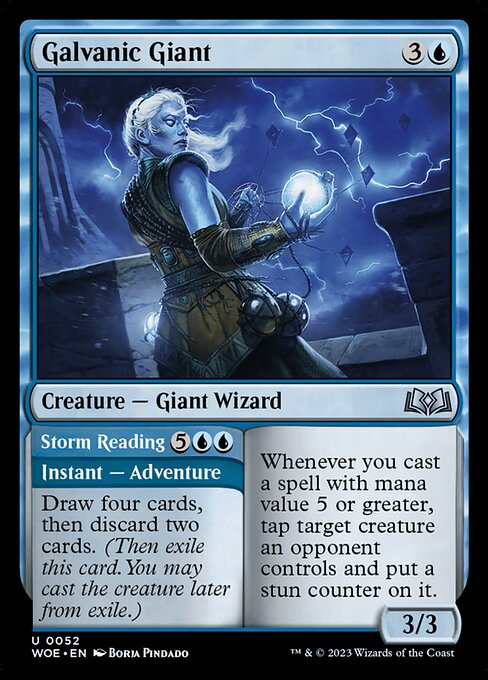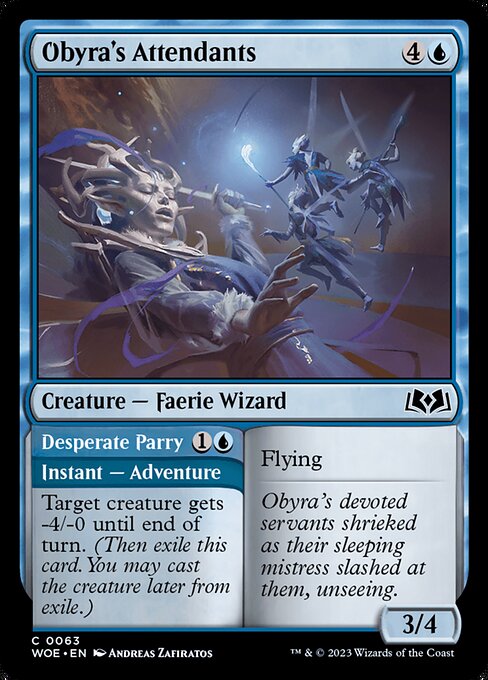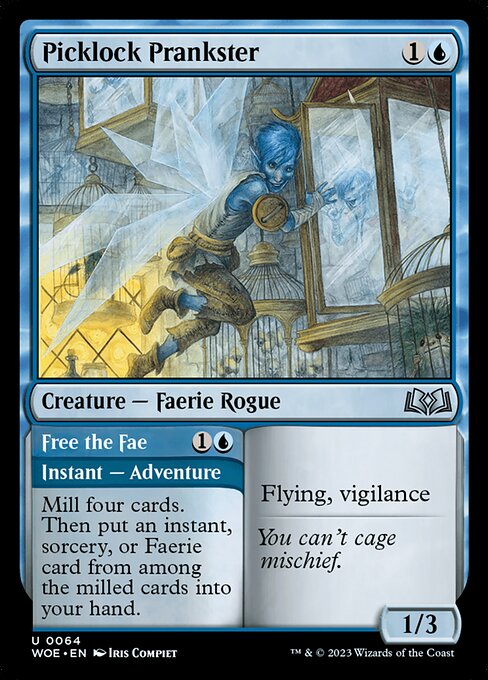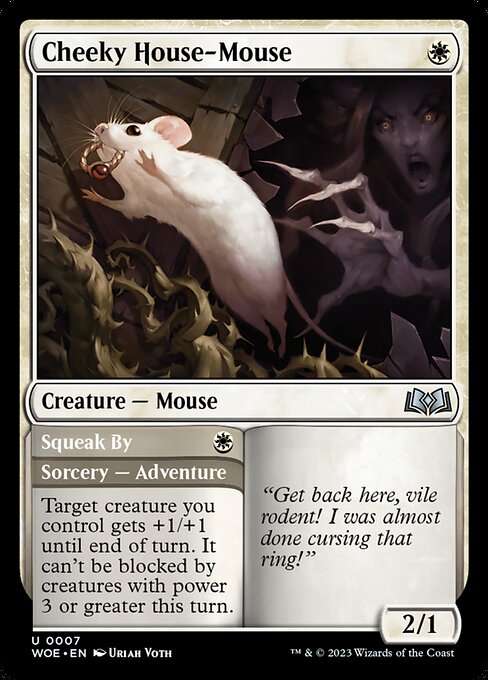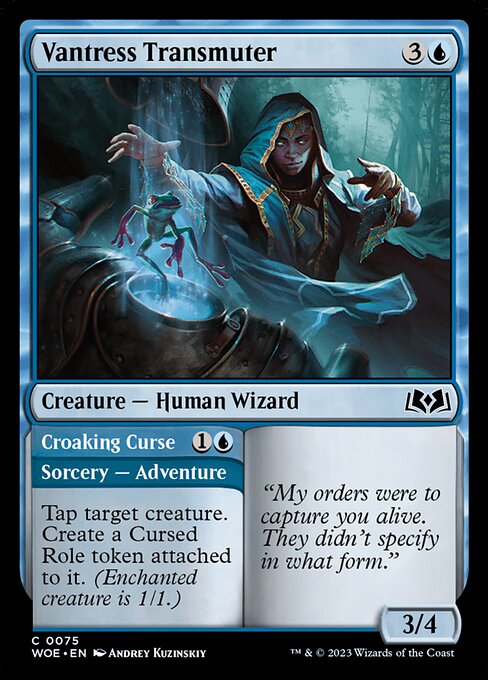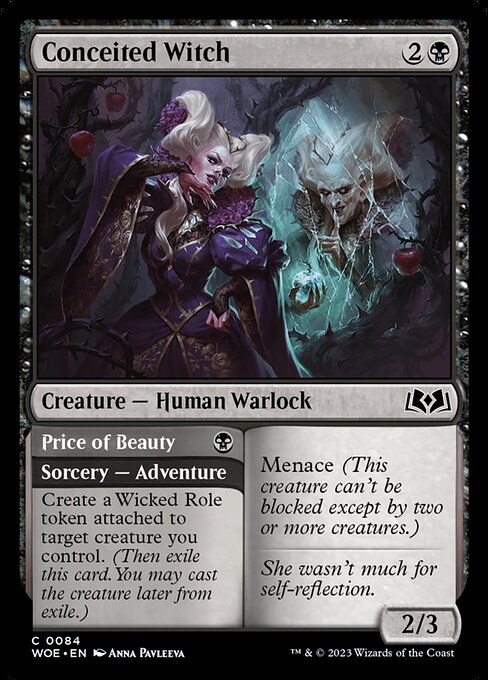Omniclown Colossus // Pie-roclasm
//
Artifact Creature — Clown Robot // Sorcery — Adventure
Affinity for Clowns (This spell costs less to cast for each Clown you control.)
Trample // Pie-roclasm deals π damage to each non-Clown creature. (How to calculate π isn't important. It's a smidgen more than 3.)
Trample // Pie-roclasm deals π damage to each non-Clown creature. (How to calculate π isn't important. It's a smidgen more than 3.)
7/7
standard
future
historic
gladiator
pioneer
explorer
modern
legacy
pauper
vintage
penny
commander
brawl
alchemy
paupercommander
duel
oldschool
premodern
Rulings
If an adventurer card ends up in exile for any other reason than by exiling itself while resolving, it won’t give you permission to cast it as a creature spell.
All the rulings from this point on are about how to play with Adventures. If you are an experienced adventurer, you can venture forth.
Only the Omniclown Colossus has affinity for Clowns. Pie-roclasm is indifferent toward Clowns and will not cost less for each Clown you control.
If an effect copies an Adventure spell, that copy is exiled as it resolves. It ceases to exist as a state-based action; it’s not possible to cast the copy as a creature.
If an object becomes a copy of an object that has an Adventure, the copy also has an Adventure. If it changes zones, it will either cease to exist (if it’s a token) or cease to be a copy (if it’s a nontoken permanent), and so you won’t be able to cast it as an Adventure.
If a spell is cast as an Adventure, its controller exiles it instead of putting it into its owner’s graveyard as it resolves. For as long as it remains exiled, that player may cast it as a permanent spell. If an Adventure spell leaves the stack in any way other than resolving (Pie-roclasm doesn’t require targets, so most likely by being countered), that card won’t be exiled and the spell’s controller won’t be able to cast it as a creature later.
A single Pie-roclasm will destroy all non-Clown creatures with toughness 3 or less. Two will destroy all non-Clown creatures with toughness 6 or less. Three, with toughness 9 or less. Four, with toughness 12 ½ or less. That’s a lot of pie.
When casting a spell as an Adventure, use the alternative characteristics and ignore all of the card’s normal characteristics. The spell’s color, mana cost, mana value, and so on are determined by only those alternative characteristics. If the spell leaves the stack, it immediately resumes using its normal characteristics.
If damage from Pie-roclasm gets redirected to a player, just use 3.14.
An adventurer card is a permanent card in every zone except the stack, as well as while on the stack if not cast as an Adventure. Ignore its alternative characteristics in those cases. For example, while it’s in your graveyard, Omniclown Colossus is a red artifact creature card whose mana value is 10.
You must still follow any timing restrictions and permissions for the creature spell you cast from exile. Normally, you’ll be able to cast it only during your main phase while the stack is empty.
All the rulings from this point on are about how to play with Adventures. If you are an experienced adventurer, you can venture forth.
Only the Omniclown Colossus has affinity for Clowns. Pie-roclasm is indifferent toward Clowns and will not cost less for each Clown you control.
If an effect copies an Adventure spell, that copy is exiled as it resolves. It ceases to exist as a state-based action; it’s not possible to cast the copy as a creature.
If an object becomes a copy of an object that has an Adventure, the copy also has an Adventure. If it changes zones, it will either cease to exist (if it’s a token) or cease to be a copy (if it’s a nontoken permanent), and so you won’t be able to cast it as an Adventure.
If a spell is cast as an Adventure, its controller exiles it instead of putting it into its owner’s graveyard as it resolves. For as long as it remains exiled, that player may cast it as a permanent spell. If an Adventure spell leaves the stack in any way other than resolving (Pie-roclasm doesn’t require targets, so most likely by being countered), that card won’t be exiled and the spell’s controller won’t be able to cast it as a creature later.
A single Pie-roclasm will destroy all non-Clown creatures with toughness 3 or less. Two will destroy all non-Clown creatures with toughness 6 or less. Three, with toughness 9 or less. Four, with toughness 12 ½ or less. That’s a lot of pie.
When casting a spell as an Adventure, use the alternative characteristics and ignore all of the card’s normal characteristics. The spell’s color, mana cost, mana value, and so on are determined by only those alternative characteristics. If the spell leaves the stack, it immediately resumes using its normal characteristics.
If damage from Pie-roclasm gets redirected to a player, just use 3.14.
An adventurer card is a permanent card in every zone except the stack, as well as while on the stack if not cast as an Adventure. Ignore its alternative characteristics in those cases. For example, while it’s in your graveyard, Omniclown Colossus is a red artifact creature card whose mana value is 10.
You must still follow any timing restrictions and permissions for the creature spell you cast from exile. Normally, you’ll be able to cast it only during your main phase while the stack is empty.
Rulings
If an adventurer card ends up in exile for any other reason than by exiling itself while resolving, it won’t give you permission to cast it as a creature spell.
All the rulings from this point on are about how to play with Adventures. If you are an experienced adventurer, you can venture forth.
Only the Omniclown Colossus has affinity for Clowns. Pie-roclasm is indifferent toward Clowns and will not cost less for each Clown you control.
If an effect copies an Adventure spell, that copy is exiled as it resolves. It ceases to exist as a state-based action; it’s not possible to cast the copy as a creature.
If an object becomes a copy of an object that has an Adventure, the copy also has an Adventure. If it changes zones, it will either cease to exist (if it’s a token) or cease to be a copy (if it’s a nontoken permanent), and so you won’t be able to cast it as an Adventure.
If a spell is cast as an Adventure, its controller exiles it instead of putting it into its owner’s graveyard as it resolves. For as long as it remains exiled, that player may cast it as a permanent spell. If an Adventure spell leaves the stack in any way other than resolving (Pie-roclasm doesn’t require targets, so most likely by being countered), that card won’t be exiled and the spell’s controller won’t be able to cast it as a creature later.
A single Pie-roclasm will destroy all non-Clown creatures with toughness 3 or less. Two will destroy all non-Clown creatures with toughness 6 or less. Three, with toughness 9 or less. Four, with toughness 12 ½ or less. That’s a lot of pie.
When casting a spell as an Adventure, use the alternative characteristics and ignore all of the card’s normal characteristics. The spell’s color, mana cost, mana value, and so on are determined by only those alternative characteristics. If the spell leaves the stack, it immediately resumes using its normal characteristics.
If damage from Pie-roclasm gets redirected to a player, just use 3.14.
An adventurer card is a permanent card in every zone except the stack, as well as while on the stack if not cast as an Adventure. Ignore its alternative characteristics in those cases. For example, while it’s in your graveyard, Omniclown Colossus is a red artifact creature card whose mana value is 10.
You must still follow any timing restrictions and permissions for the creature spell you cast from exile. Normally, you’ll be able to cast it only during your main phase while the stack is empty.
All the rulings from this point on are about how to play with Adventures. If you are an experienced adventurer, you can venture forth.
Only the Omniclown Colossus has affinity for Clowns. Pie-roclasm is indifferent toward Clowns and will not cost less for each Clown you control.
If an effect copies an Adventure spell, that copy is exiled as it resolves. It ceases to exist as a state-based action; it’s not possible to cast the copy as a creature.
If an object becomes a copy of an object that has an Adventure, the copy also has an Adventure. If it changes zones, it will either cease to exist (if it’s a token) or cease to be a copy (if it’s a nontoken permanent), and so you won’t be able to cast it as an Adventure.
If a spell is cast as an Adventure, its controller exiles it instead of putting it into its owner’s graveyard as it resolves. For as long as it remains exiled, that player may cast it as a permanent spell. If an Adventure spell leaves the stack in any way other than resolving (Pie-roclasm doesn’t require targets, so most likely by being countered), that card won’t be exiled and the spell’s controller won’t be able to cast it as a creature later.
A single Pie-roclasm will destroy all non-Clown creatures with toughness 3 or less. Two will destroy all non-Clown creatures with toughness 6 or less. Three, with toughness 9 or less. Four, with toughness 12 ½ or less. That’s a lot of pie.
When casting a spell as an Adventure, use the alternative characteristics and ignore all of the card’s normal characteristics. The spell’s color, mana cost, mana value, and so on are determined by only those alternative characteristics. If the spell leaves the stack, it immediately resumes using its normal characteristics.
If damage from Pie-roclasm gets redirected to a player, just use 3.14.
An adventurer card is a permanent card in every zone except the stack, as well as while on the stack if not cast as an Adventure. Ignore its alternative characteristics in those cases. For example, while it’s in your graveyard, Omniclown Colossus is a red artifact creature card whose mana value is 10.
You must still follow any timing restrictions and permissions for the creature spell you cast from exile. Normally, you’ll be able to cast it only during your main phase while the stack is empty.
Votre collection ? vos decks ?
Envie de gérer votre collection et/ou créer des decks ?
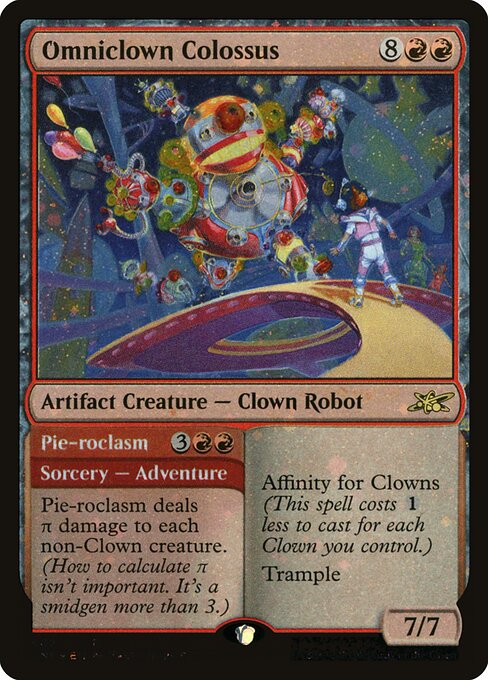

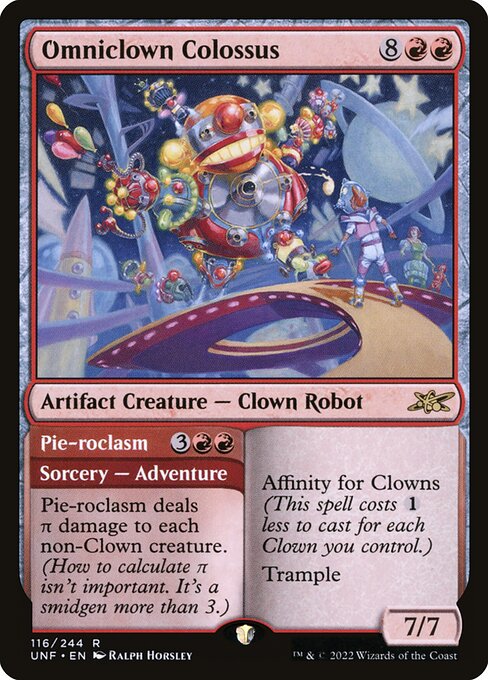
 0
0
 0.08€
0.08€
